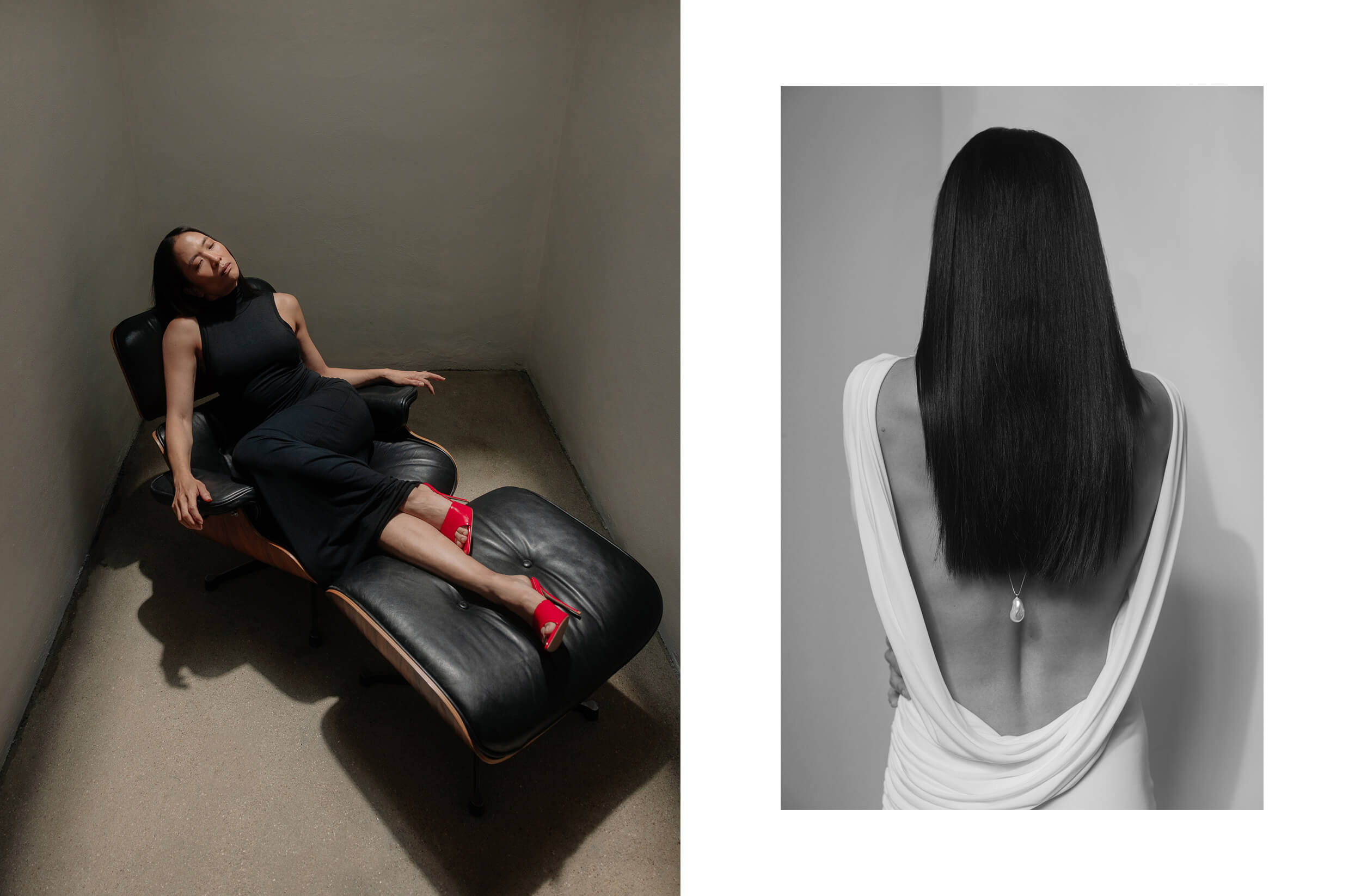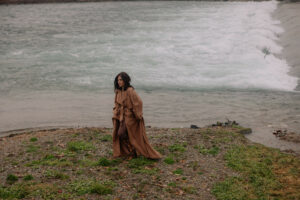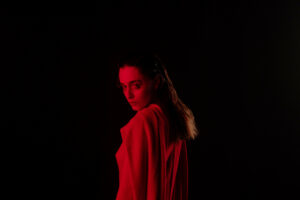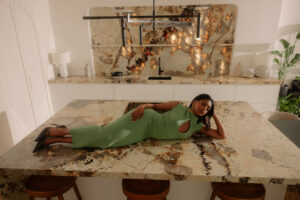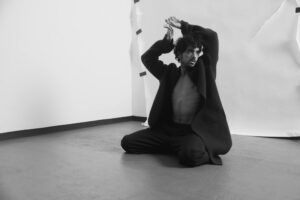For forty-five years, Weyland-Yutani has been cinema’s most insidious antagonist: a company so ruthlessly capitalistic it treats human lives as acceptable losses in pursuit of profit. Now, in “Alien: Earth”, this abstract evil gets a human form, and it’s embodied by Sandra Yi Sencindiver. Sandra brings a unique perspective to the role – someone who has spent her career championing the underprivileged suddenly finding herself in the skin of ultimate privilege. It’s old money versus new rebellion, generational power versus earned wisdom. In a universe where survival often means fighting the system, Sandra’s Yutani is the system.
In “Alien: Earth”, the monsters might be extraterrestrial, but the real terror, as always, walks among us, perhaps in expensive suits and three layers of silk.
What’s your first cinema memory?
On my 10th or 11th birthday, in Denmark, my mom let me invite a couple of girlfriends to go see “The Bodyguard” and it was a really special experience because we didn’t have a lot of money, so it was quite luxurious to be able to go to the movies and also bring some girlfriends. Then we were also allowed to go to McDonald’s afterwards, which was also fabulous. We were interviewed outside of McDonald’s of what kind of food children liked, and that interview is still somewhere on the Internet! [laughs] And I had only been in Denmark for a year and when I saw the video as a grown-up, it was such so funny to hear because I had already picked up on the Danish dialect [laughs].
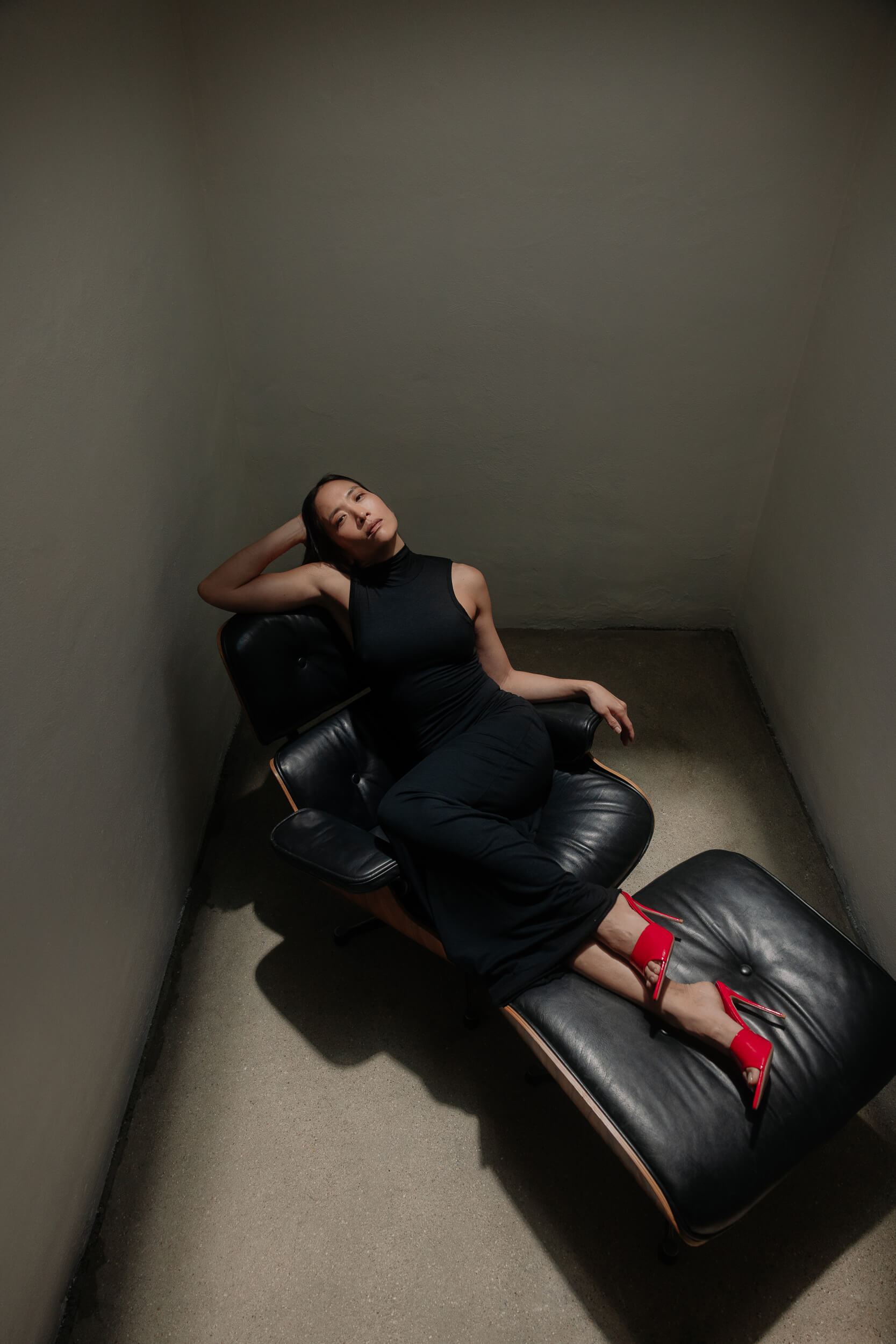
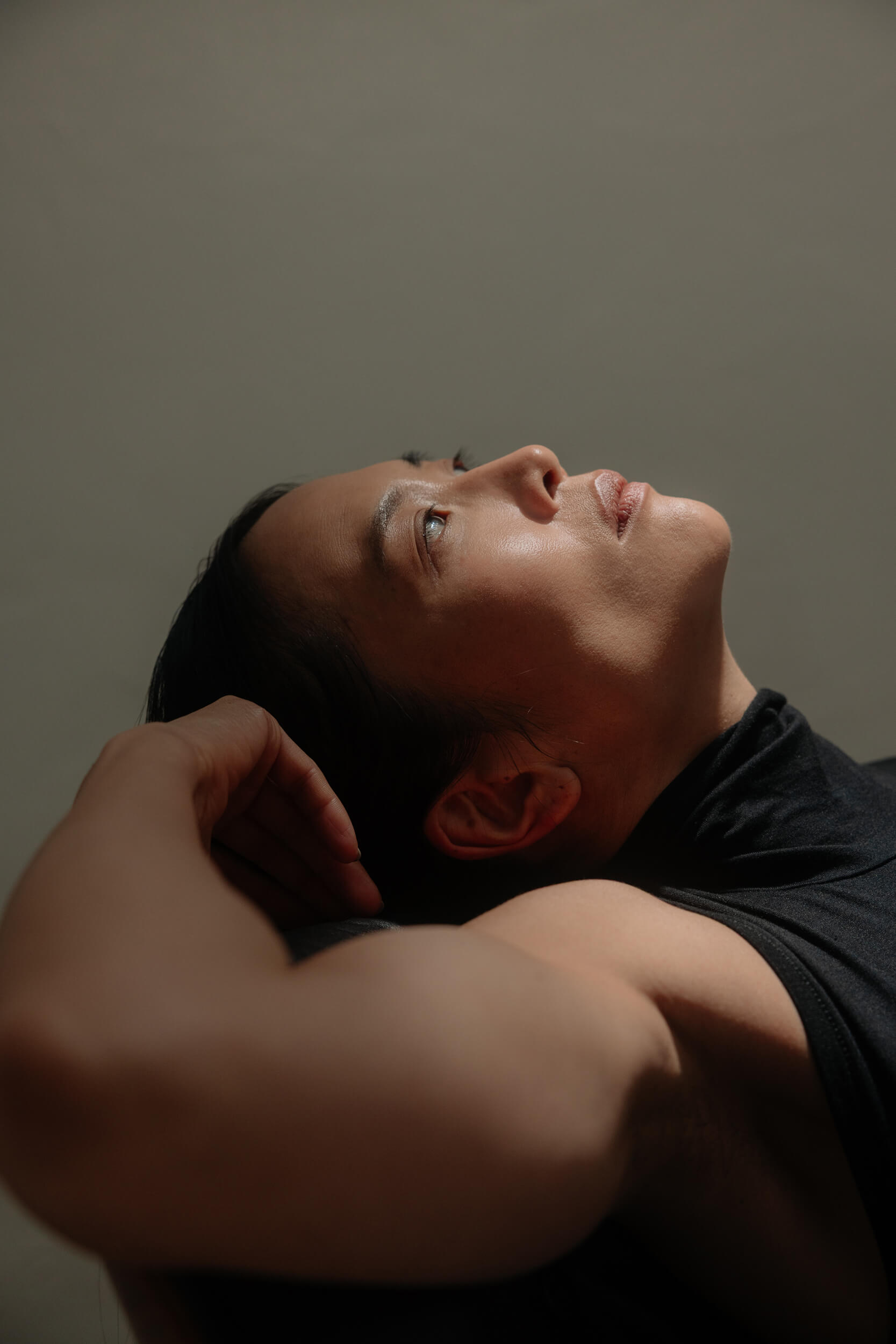
When you first read the script of “Alien:Earth”, what intrigued you most about the storytelling and your character?
Story-wise, it’s always exciting to read manuscripts where you just flip the pages. Sometimes you get scripts, and the series can turn out really good, but it can be a little bit of a heavy read. But with this, I was constantly craving for more episodes to read, it was so intriguing, I was so interested in seeing where it was going to go and learning a lot about these different characters and all the ideas that were unfolding. In that sense, it’s got a lot of meat and a lot of ideas put into the science fiction world. I loved the callbacks to the original “Alien” films which I was a huge fan of when I was a kid, but I also loved reading the new concepts and ideas and how they tied into all the things that the world is dealing with right now and the way that the power structures are built up, how capitalism is a moving force for everything in our world right now. In that sense, it was also exciting for me to read about this character – people have a very strong relationship with the corporation that is the iconic big bad. It’s been an honour to play the CEO of that and to play a character that hadn’t been portrayed on screen before, so I don’t have anything to live up to.
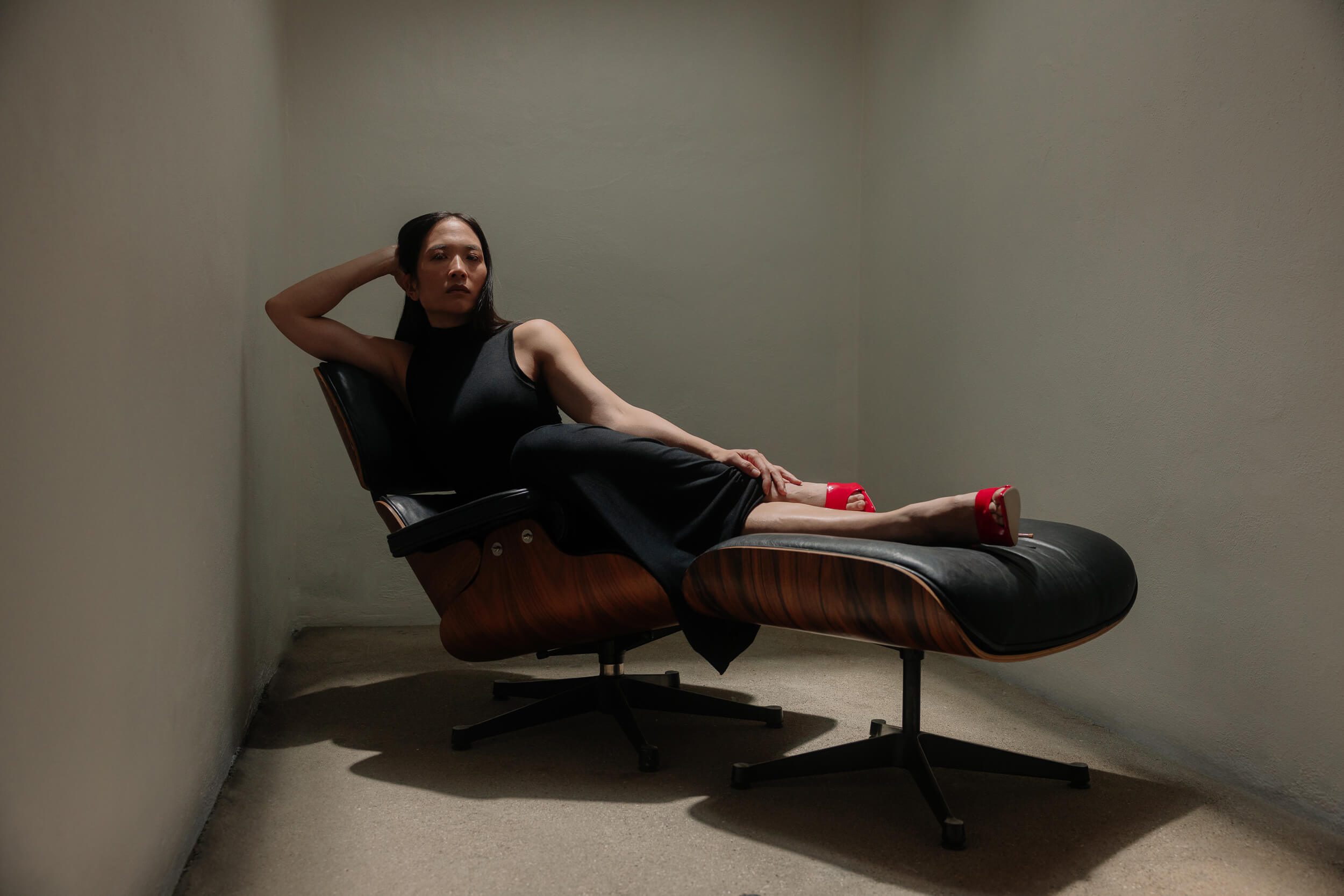
“…people have a very strong relationship with the corporation that is the iconic big bad. It’s been an honour to play the CEO of that.”
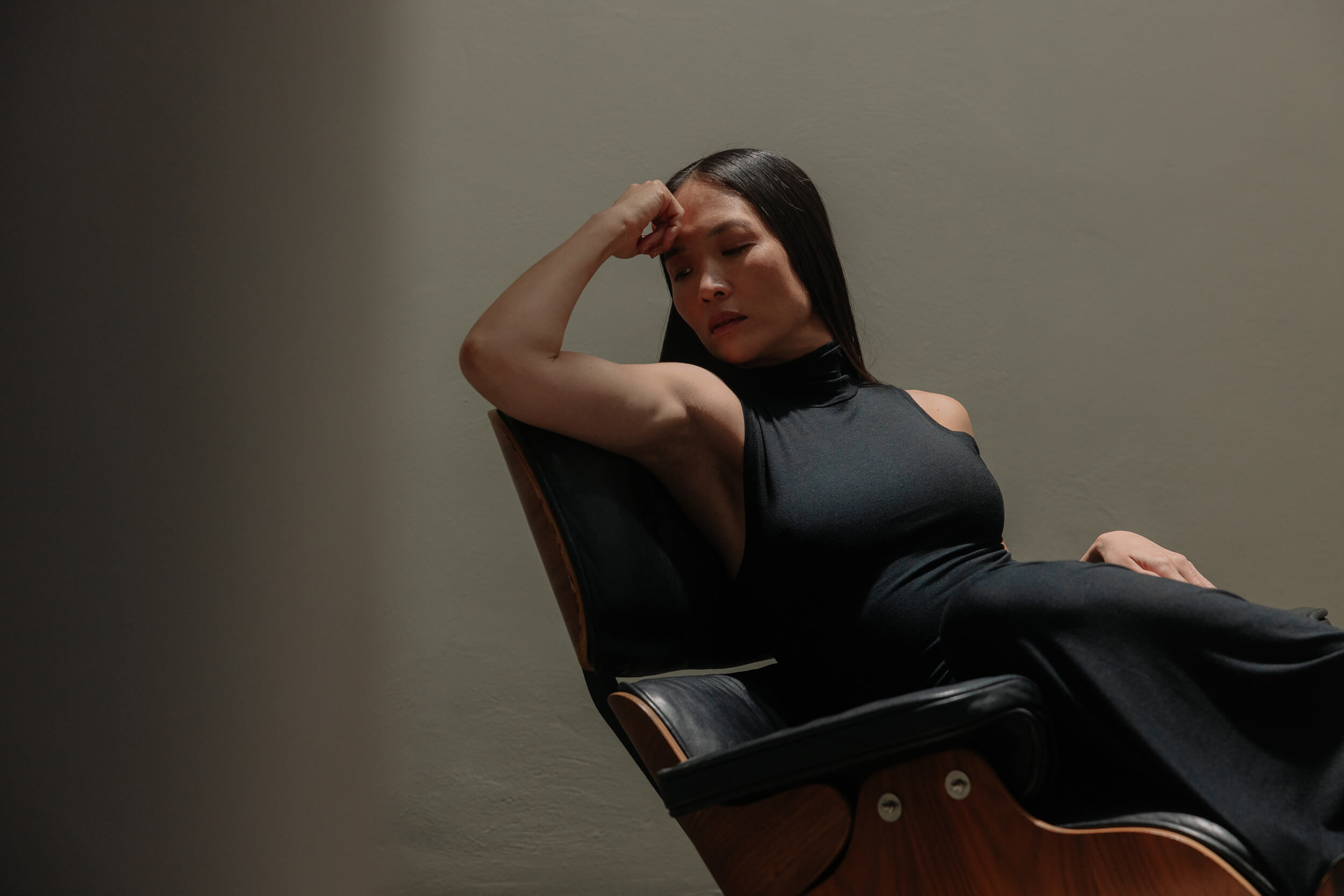
Playing a Weyland-Yutani executive means embodying not just a character, but a whole ideology. How did you step into the mindset of someone who represents such a powerful and morally ambiguous corporation?
You know, one thing is the lore, the legacy and the relationship that everybody else has to this corporation, and that lies in the back of your mind obviously when you’re building on top of it, but you’re also like, “What’s in the text? What’s in the scenes?”. It’s very much about this power struggle between a very old well-renowned corporation that’s been led by her family for generations, and then this newcomer who has come out of nothing and thinks he knows everything, and who wants to grab power and who challenges her. So, I focused on the question: “What is the power dynamics between these two corporations?”. Yutani is going to be the privileged, the established, the one who has never had to fight for anything in her life. She’s been born into power, and she has to carry that power on. She’s like old money, old power, and is challenged by this young kid who doesn’t play by the rules. She’s very much about tradition and legacy, while being challenged by something that is very, very new. Also, she is the type of character that “can walk on water”, as if she owns a fifth of the universe, because she does.
So, knowing that you own the world, for me, was a challenge, also from a physical point of view, like, “How would this person like that carry herself?”.
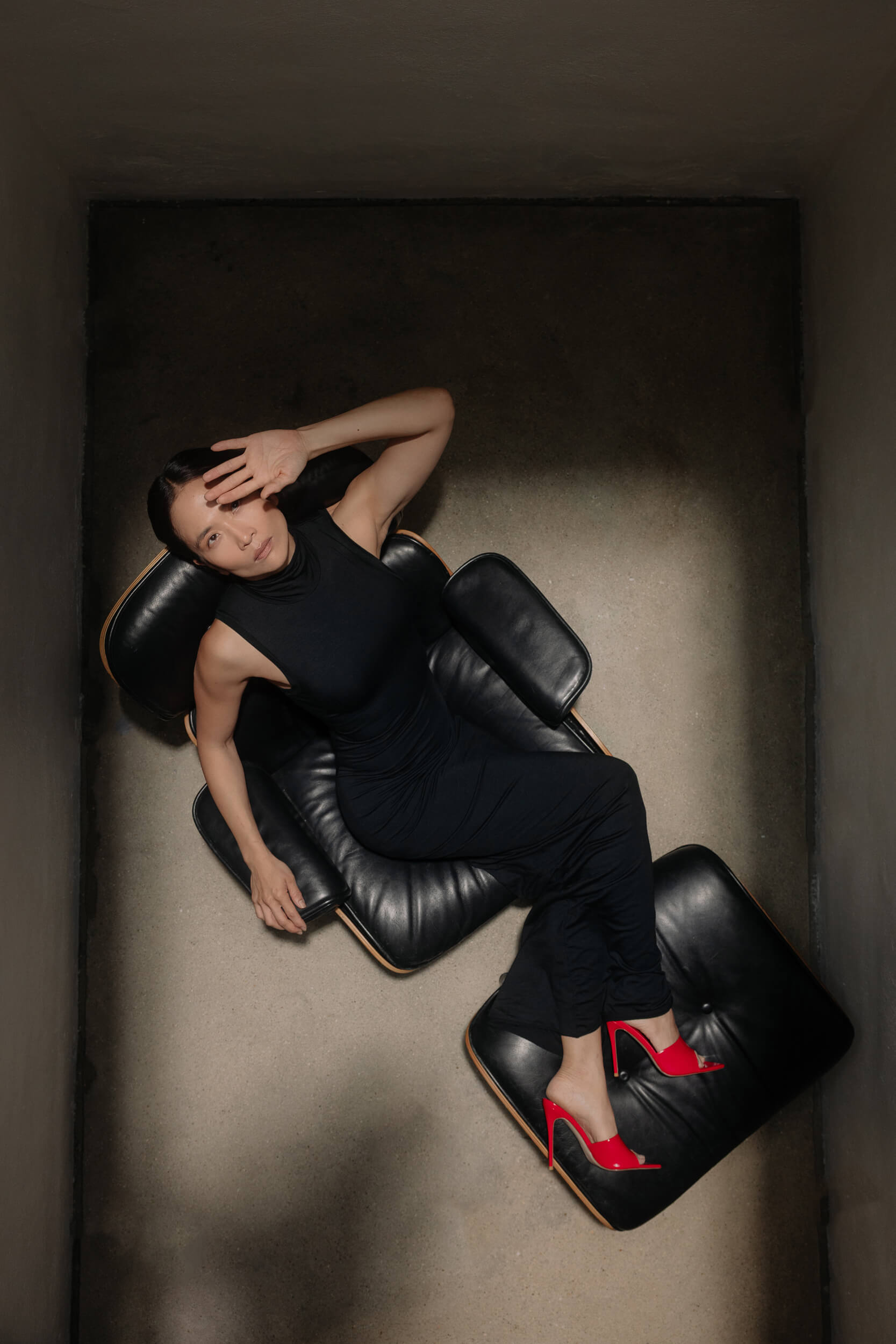
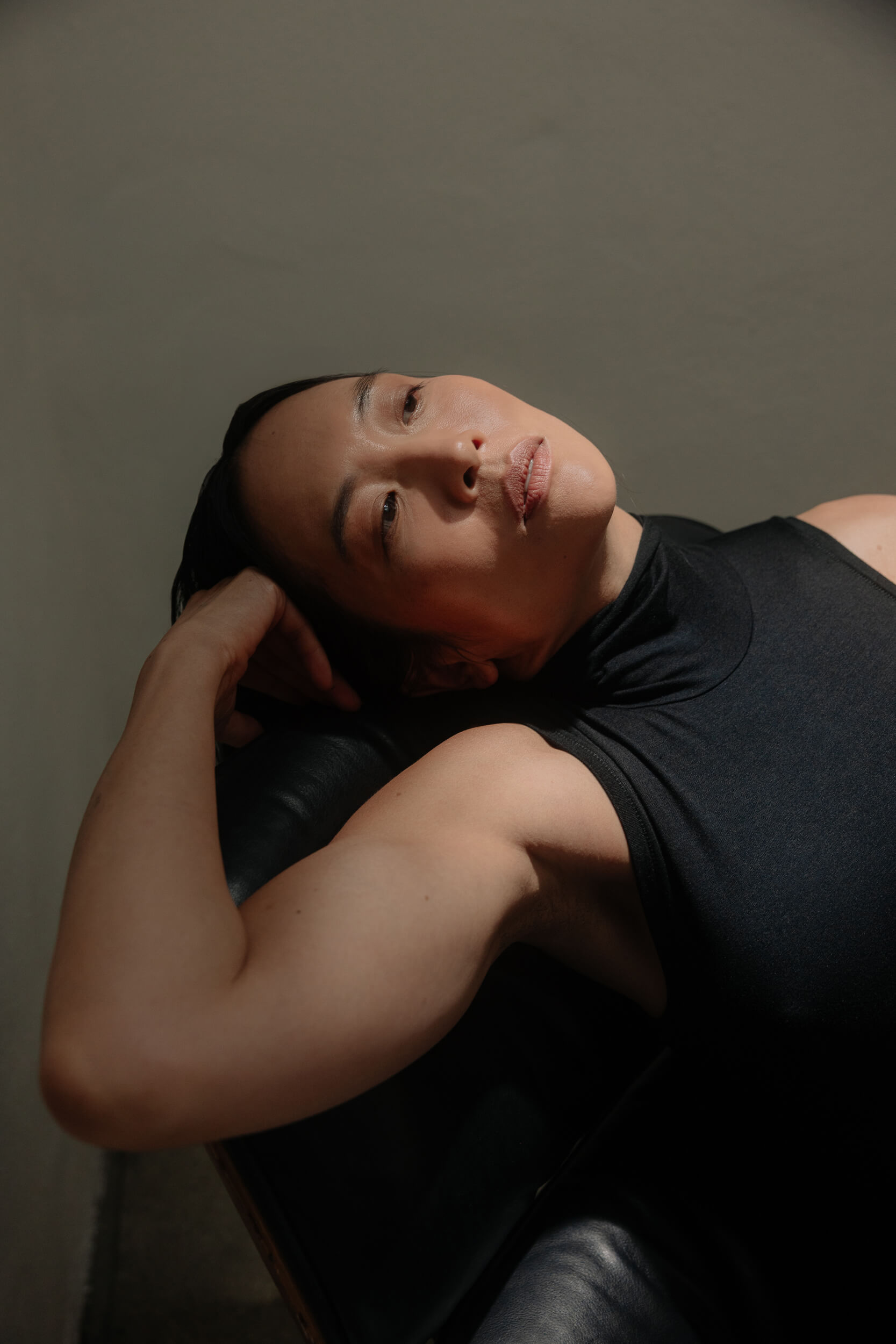
Was there a particular moment on set that completely changed the way you saw your character?
I just very much felt like I was informed by the text, so I had made a lot of decisions beforehand. Then it was a slow build. So many of the actors were on this project forever, while I was only a part of the project the last three months of shooting. You know, I had auditioned for the part the year before filming, but I had just said yes to another project, “Geek Girl” and had already started filming that. And the “Alien” team said that any cast had to be here all the time because the show is so big, and they couldn’t try to plan around people’s schedules. So, they took me out of the pool, even though I was shortlisted after the first audition. I was so sad about that because I really wanted to be part of the project. But then, when they started shooting the show, the strike came, and two of the main leads were from the United States, so because of that, they couldn’t work on the show, and they had to shut it down. After Christmas, another opportunity arose, and I auditioned for the role of Yutani again and had a callback and then I landed the role. In the end, I was really, really lucky to be able to do both “Geek Girl” and have the opportunity to do “Alien”.
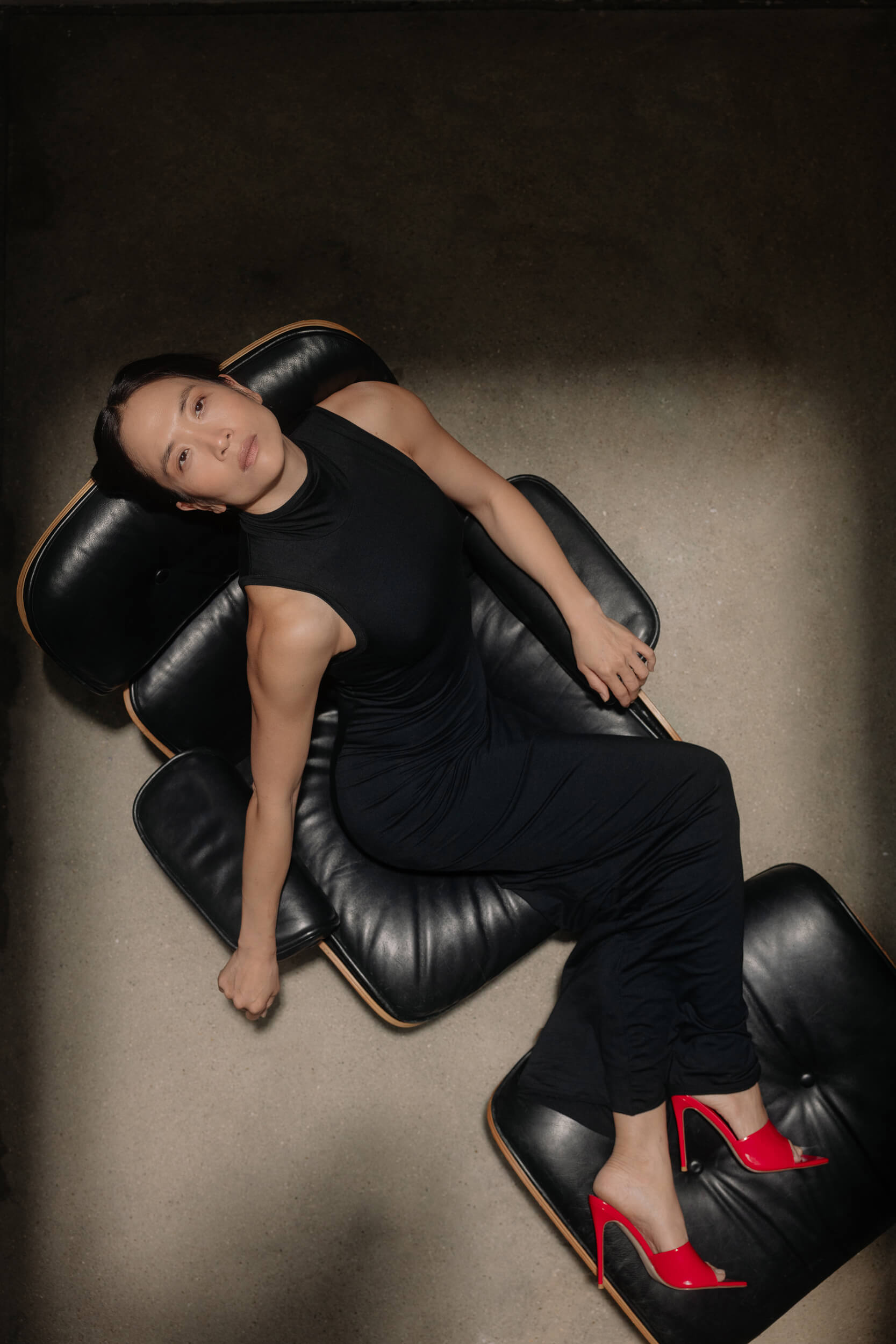
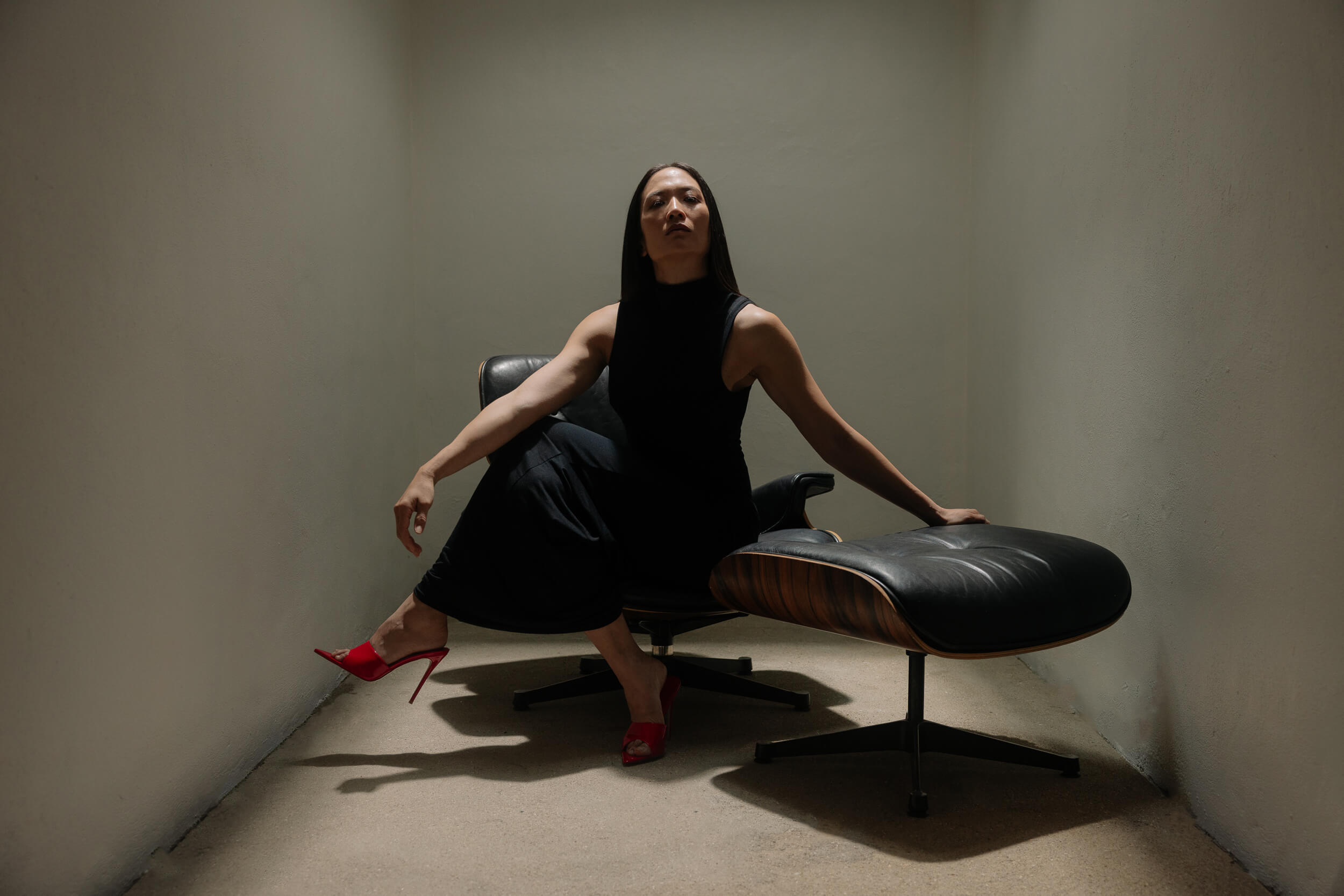
What a journey! Weyland-Yutani has always symbolized corporate ambition pushed to its darkest extremes. Did you feel more like you were portraying a villain, a visionary, or something in between?
I don’t feel that Yutani is necessarily a visionary because everything she has, she’s been given, she didn’t fight for it, she didn’t invent anything. She’s been born into power, she’s been born into money. So, it’s more like “I have the power, I have the money, I have the privilege“. It’s more about being able to continue the legacy and being able to continue the kind of generational lifestyle and make sure that her grandmother’s legacy continues.
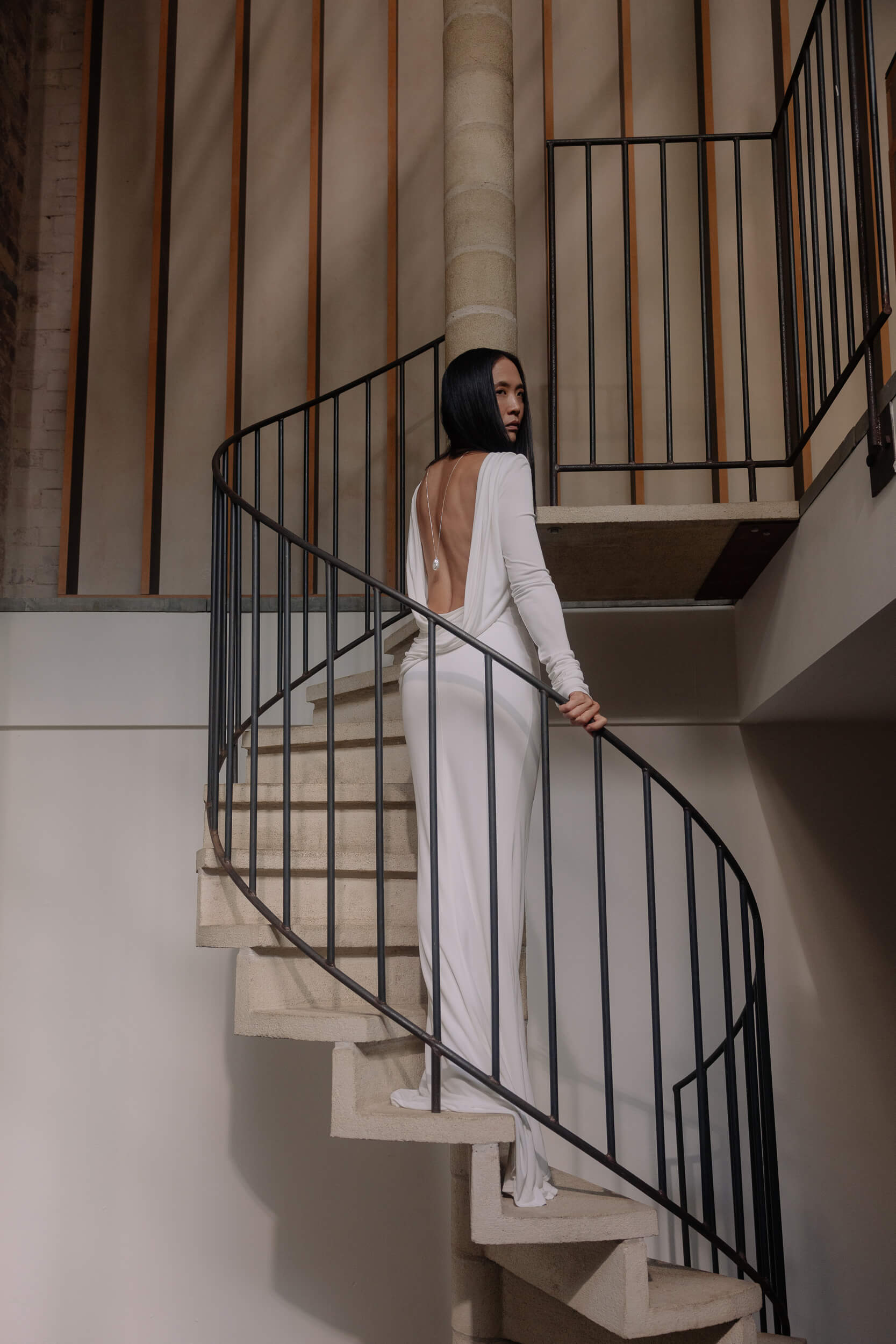
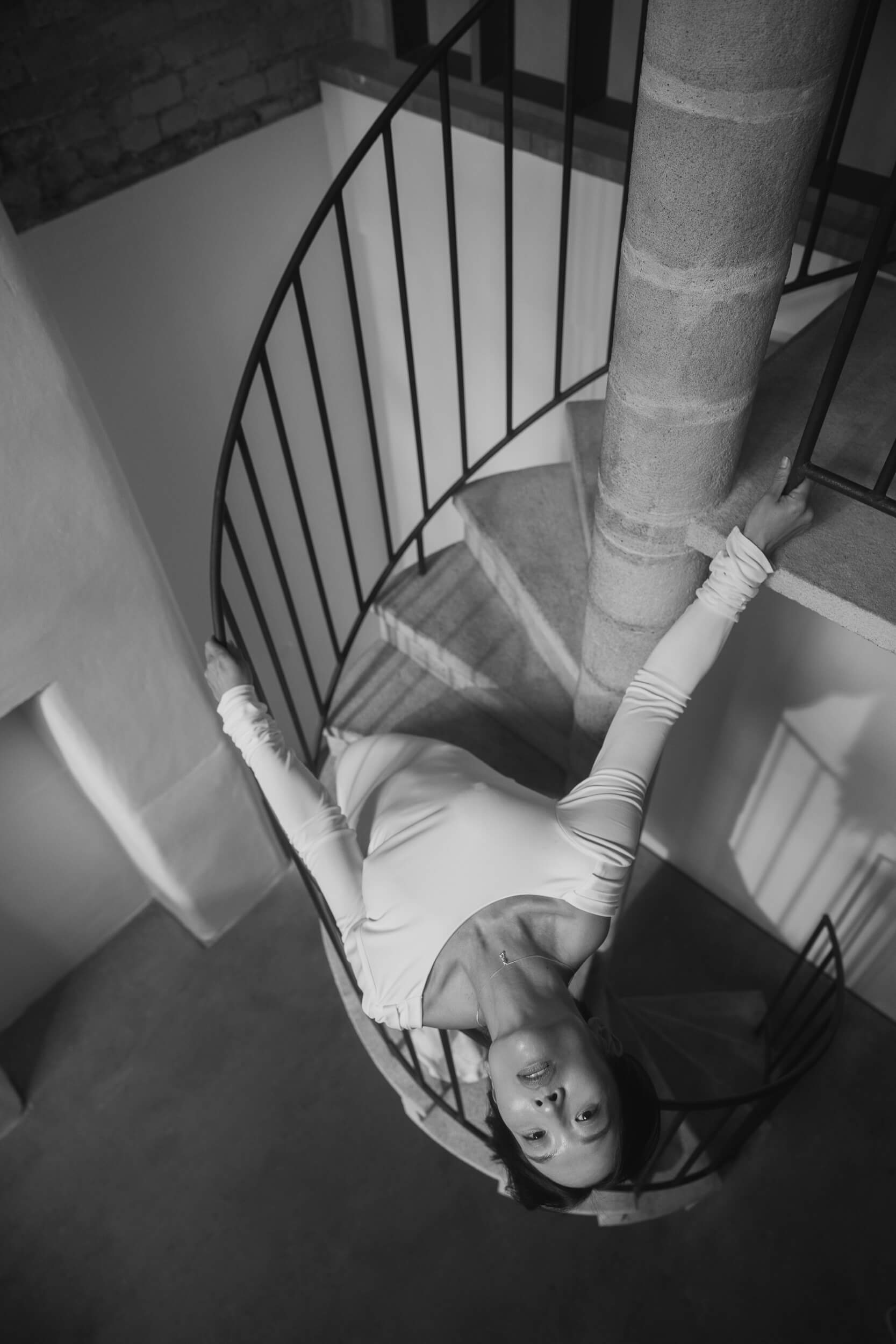
The Alien films have always had strong, unforgettable female characters. Did you feel a kind of “dialogue” with them while creating your role?
I’m not quite sure that I do, because I feel that these female protagonists have been very much based in working class, lower class, very underprivileged, and they have only had their fierceness and their bodies to be able to fight back. Actually, in this world, it does seem like it’s still very male dominated, very patriarchal. So, in that sense, I think Yutani has more in common with some of the privileged, rich white men than she does with the female protagonists.
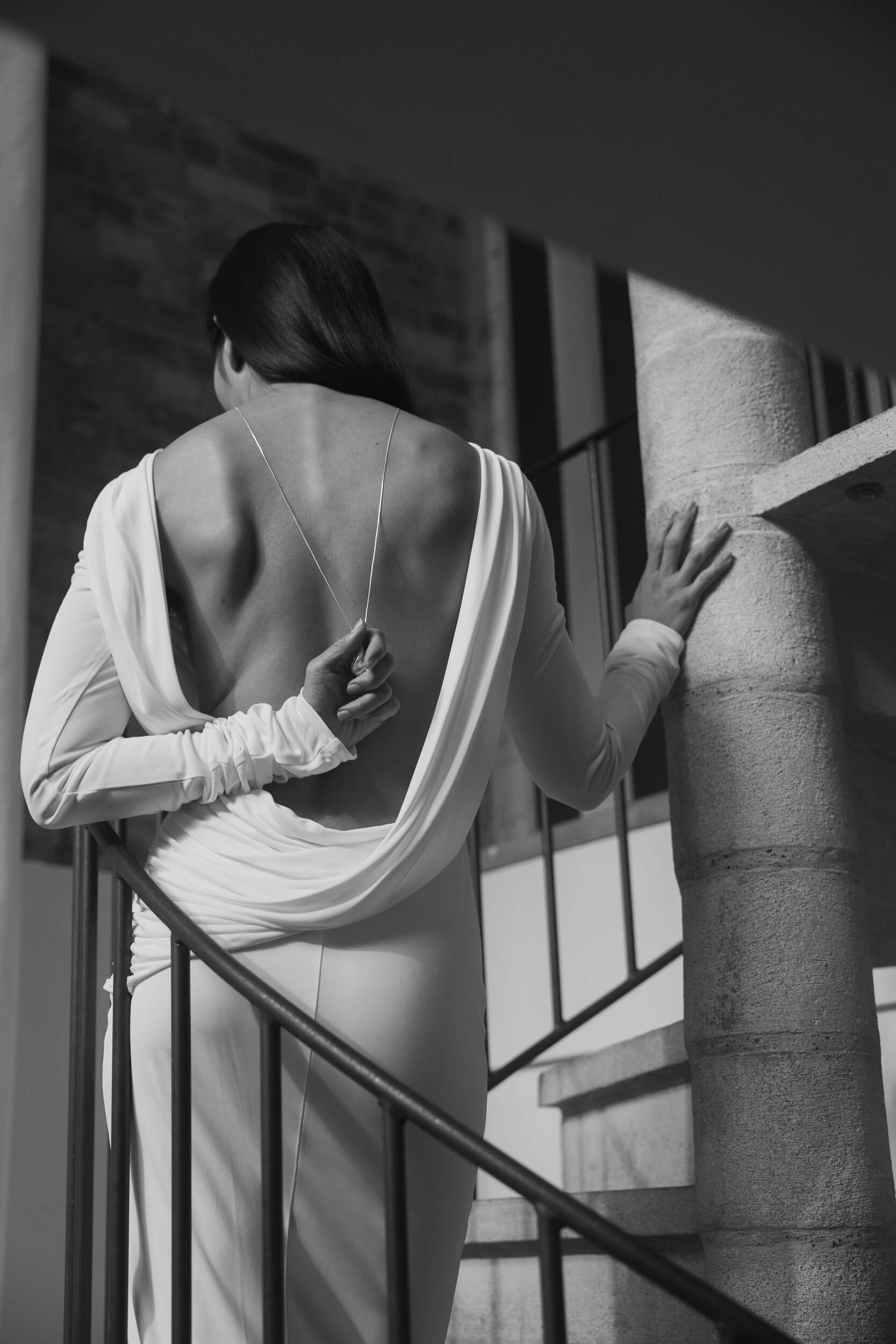
“I think Yutani has more in common with some of the privileged, rich white men than she does with the female protagonists.”
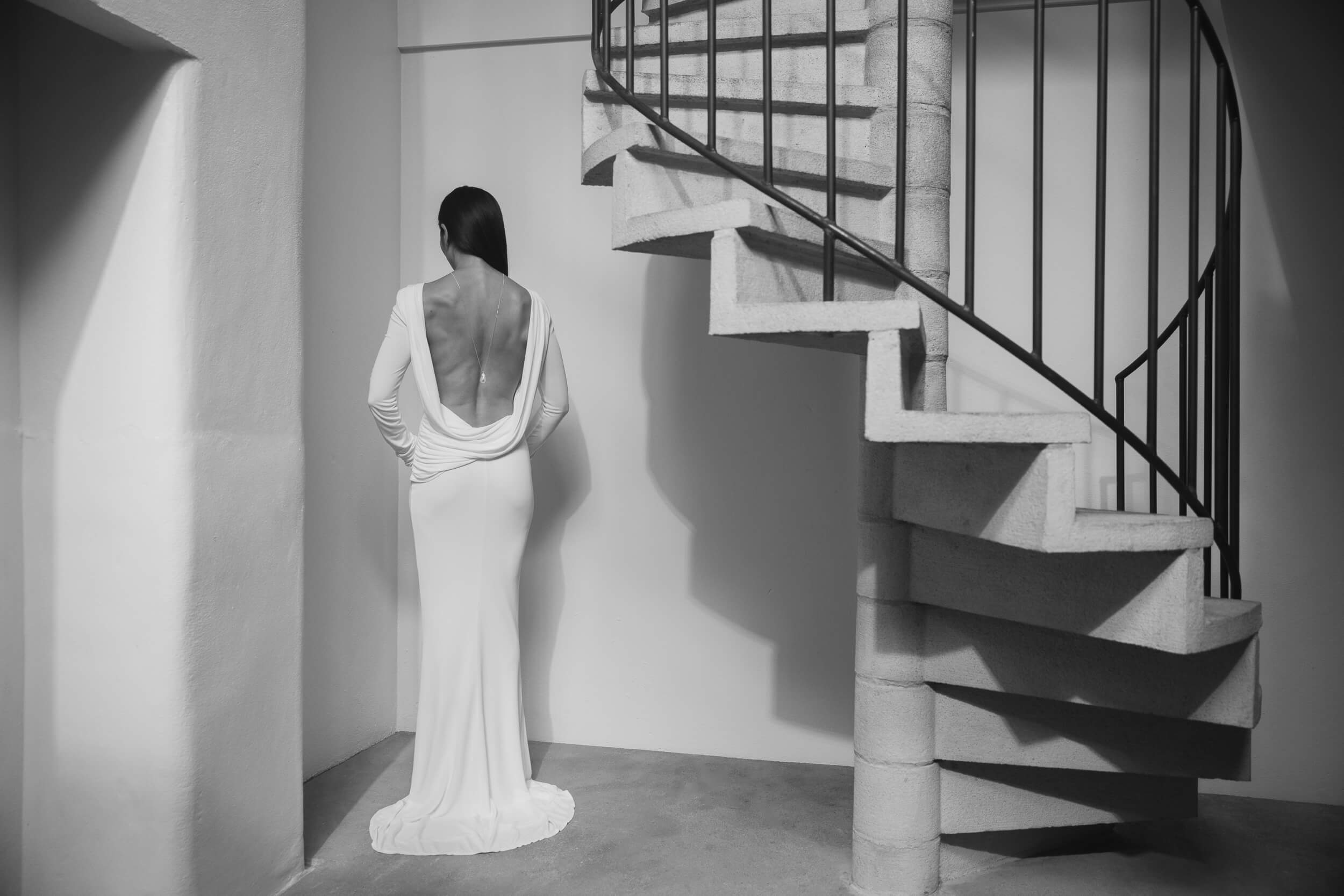
So, did you find echoes of real-world corporate culture while working on this role?
Yes, absolutely. Just the sense that that these corporations don’t care about the environment or the people that they affect and that that revenues and money profit drives their mission. And it doesn’t matter at what cost, no reference to their actions’ effects on the climate or the world or the ecosystem or the people. I very much think that it’s a direct mirror of the way the huge corporations work now and of the fact that there are a lot of things that they can’t do anyway and that they really don’t care about. So, in that sense, it’s not so science fiction that part of the TV series, it’s very much a reflection of our world.
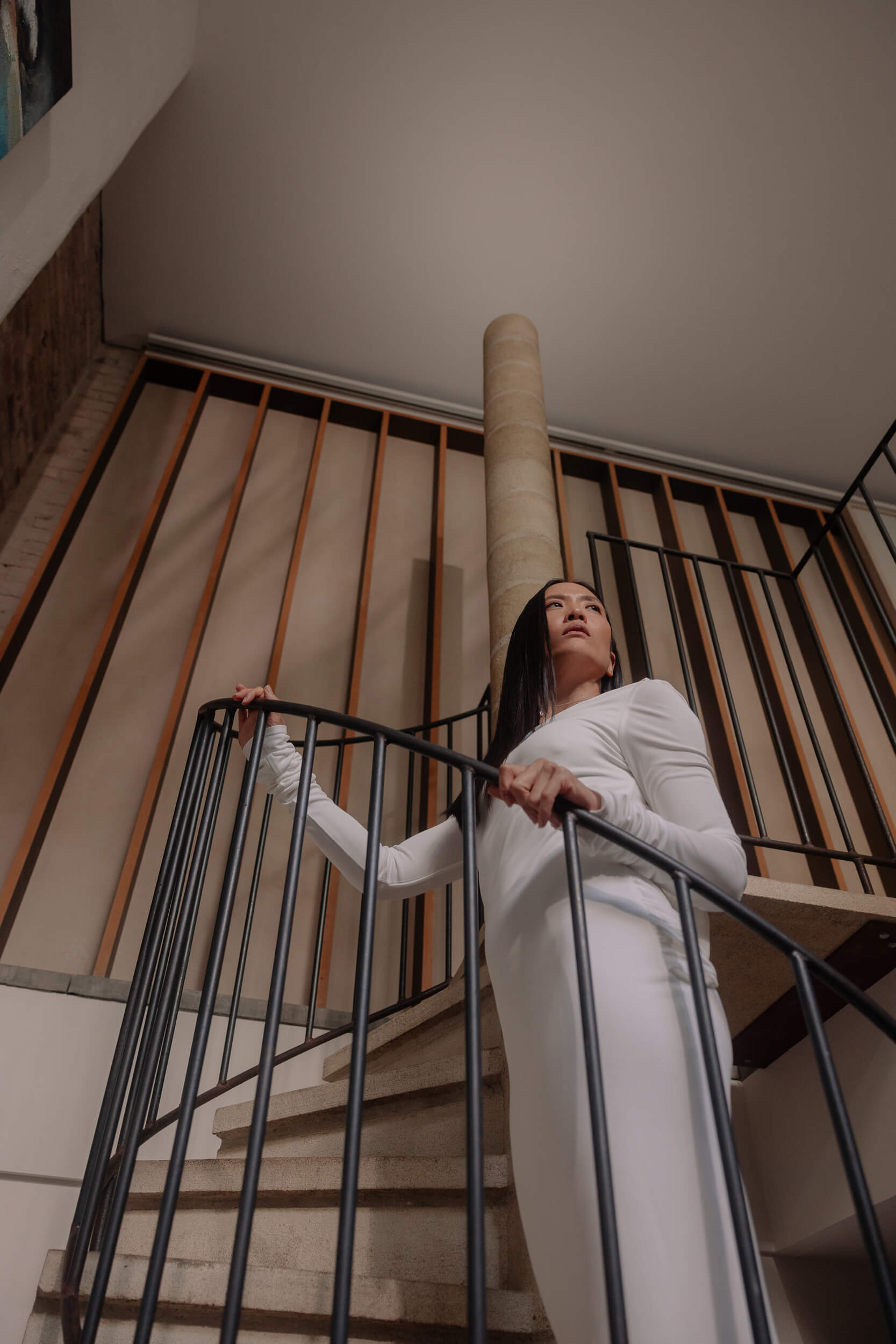
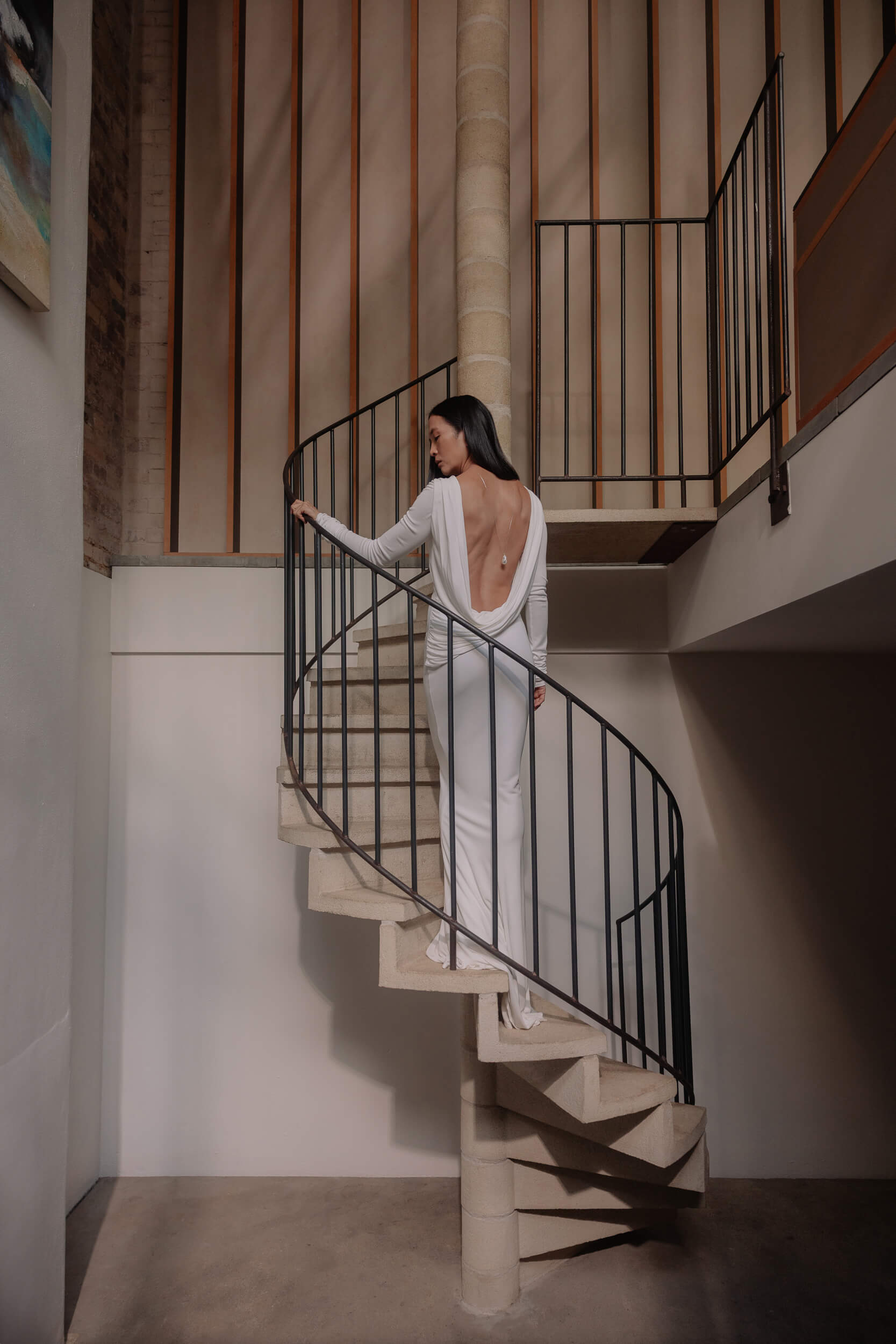
How much did you draw from the Alien legacy when crafting your interpretation, and how much did you want to break away from it?
The interesting thing about being able to fill out these shoes is that we’ve never actually seen a face. Well, of course, Peter Wayland in the prequels, but in the original “Alien” films, it’s like a faceless corporation. So, in that sense, I could just like look at the text and build the character with the directors, with Noah [Hawley, screenwriter] and the set designer. It’s very much about what kind of clothes they put on her, what kind of jewellery, what location are we shooting in. Every space you see Yutani in is amazing because it has to say a lot about what kind of world she moves within, which is a huge contrast to the very small, enclosed, non-organic, “no sky, no space” areas that everybody who’s actually fighting the aliens are put in. Her spaces are luxurious and full of space and air and sky and money.
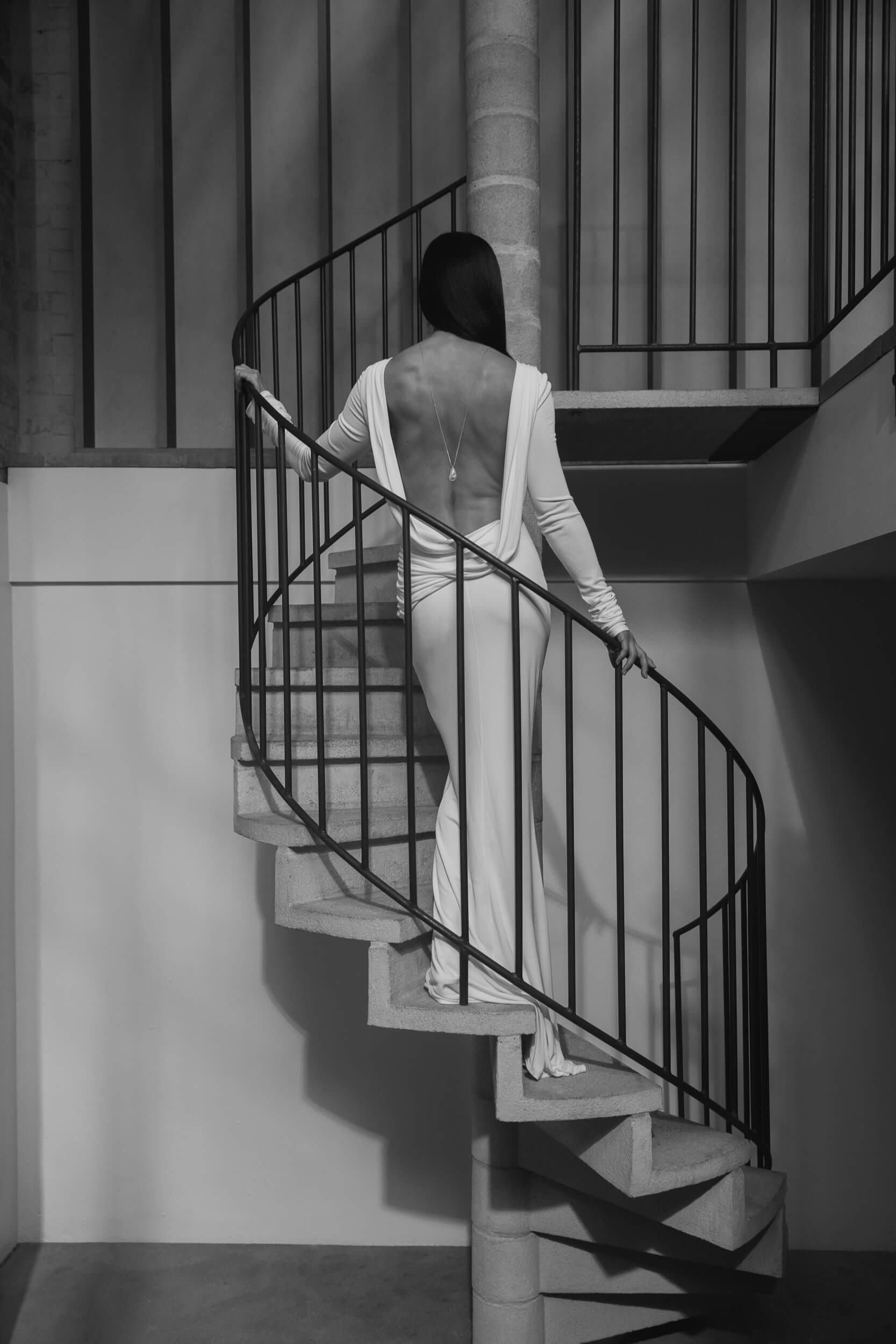
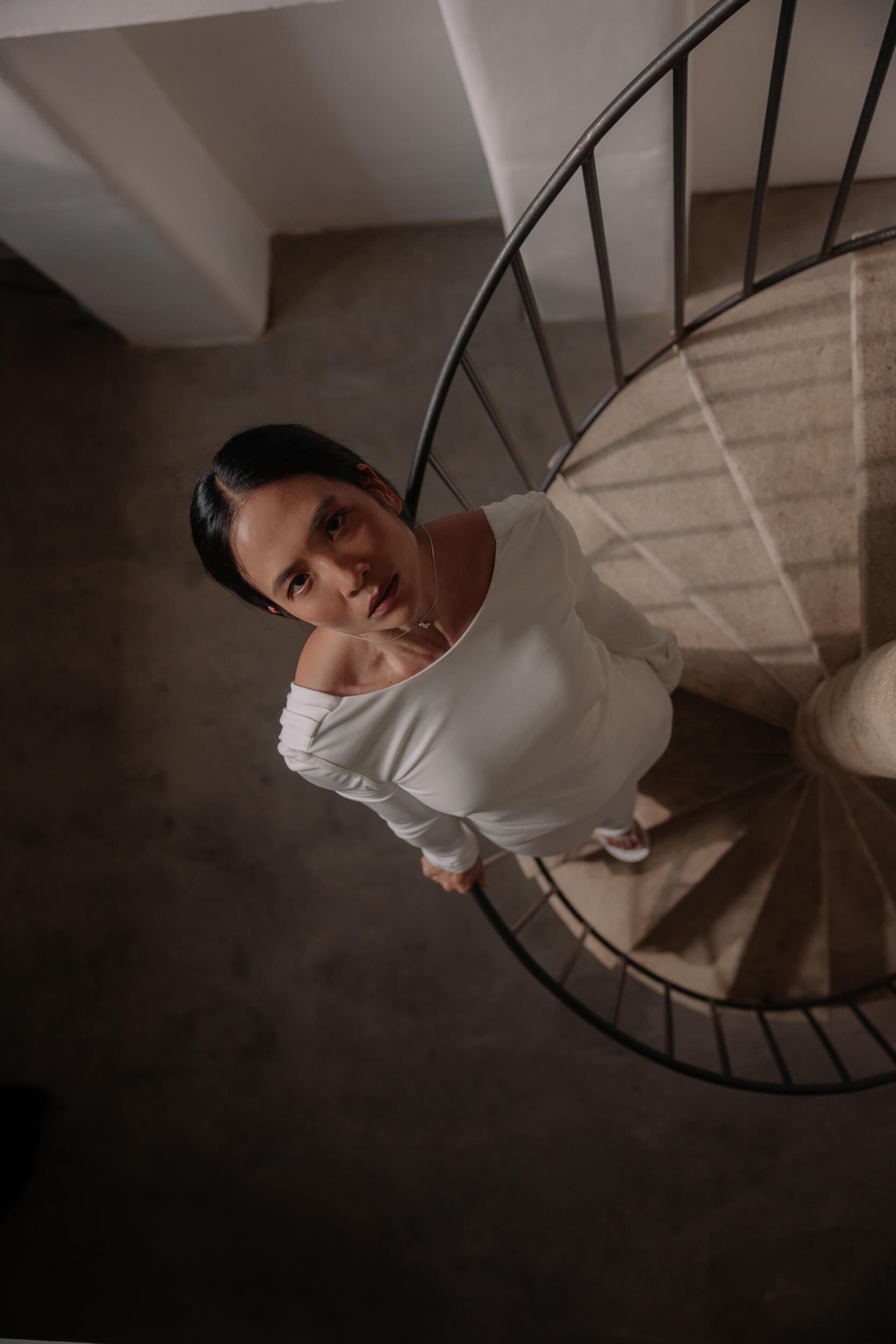
Do you think spending so much time inside this universe has changed the way you imagine the future, whether hopeful or terrifying?
I’m a very hopeful person with a lot of optimism, but spending time inside this universe does not make you hopeful. However, sometimes we need to scare mankind to make them wake up and fight whatever movement we’re in the middle of.
If the Alien franchise is ultimately about survival, what does survival mean to you personally?
I think we should feel lucky if we are living a life where survival is not a question for us. I think we should appreciate that we able to feed our family, that we have a house, and really feel privileged. That’s a lot of things to be grateful for, and at the same time, something very little that should be bestowed upon everybody on this planet, especially at this time. I do see right now that a lot of celebrities can get flack for trying to draw attention to inequality or to war or to underprivileged people, and I’m just thinking that it’s because it interrupts people’s everyday life, like, “I didn’t come here to hear about war and famine and inequality. I came here to be entertained“. But I think if you’re not in a position of being starved or bombed at or being treated poorly, you should feel lucky that sometimes your entertainment is spoiled by some people speaking up about the inequalities of the world. So, survival is just being able to live in peace and feed your family.
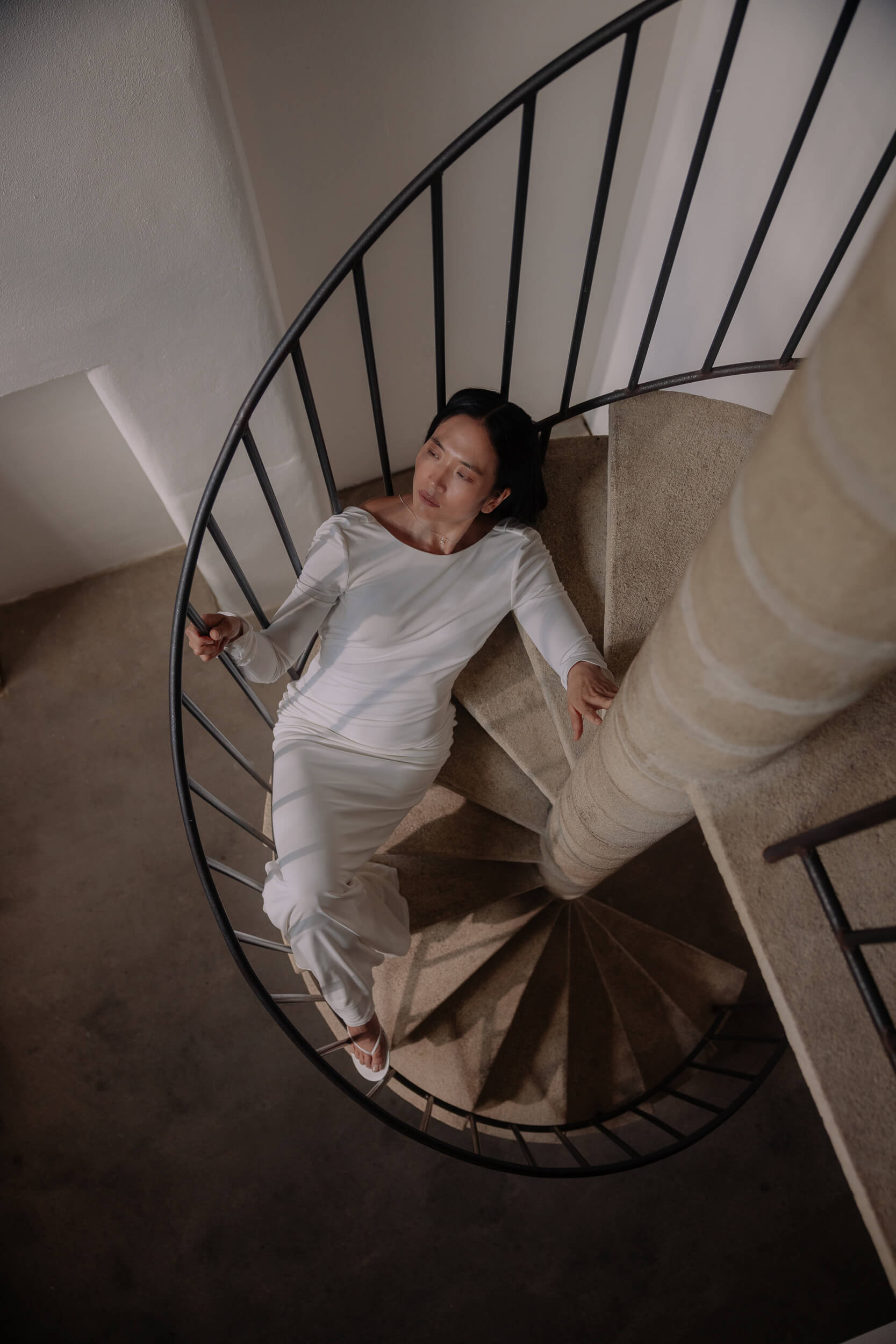
“Sometimes we need to scare mankind to make them wake up and fight whatever movement we’re in the middle of.”
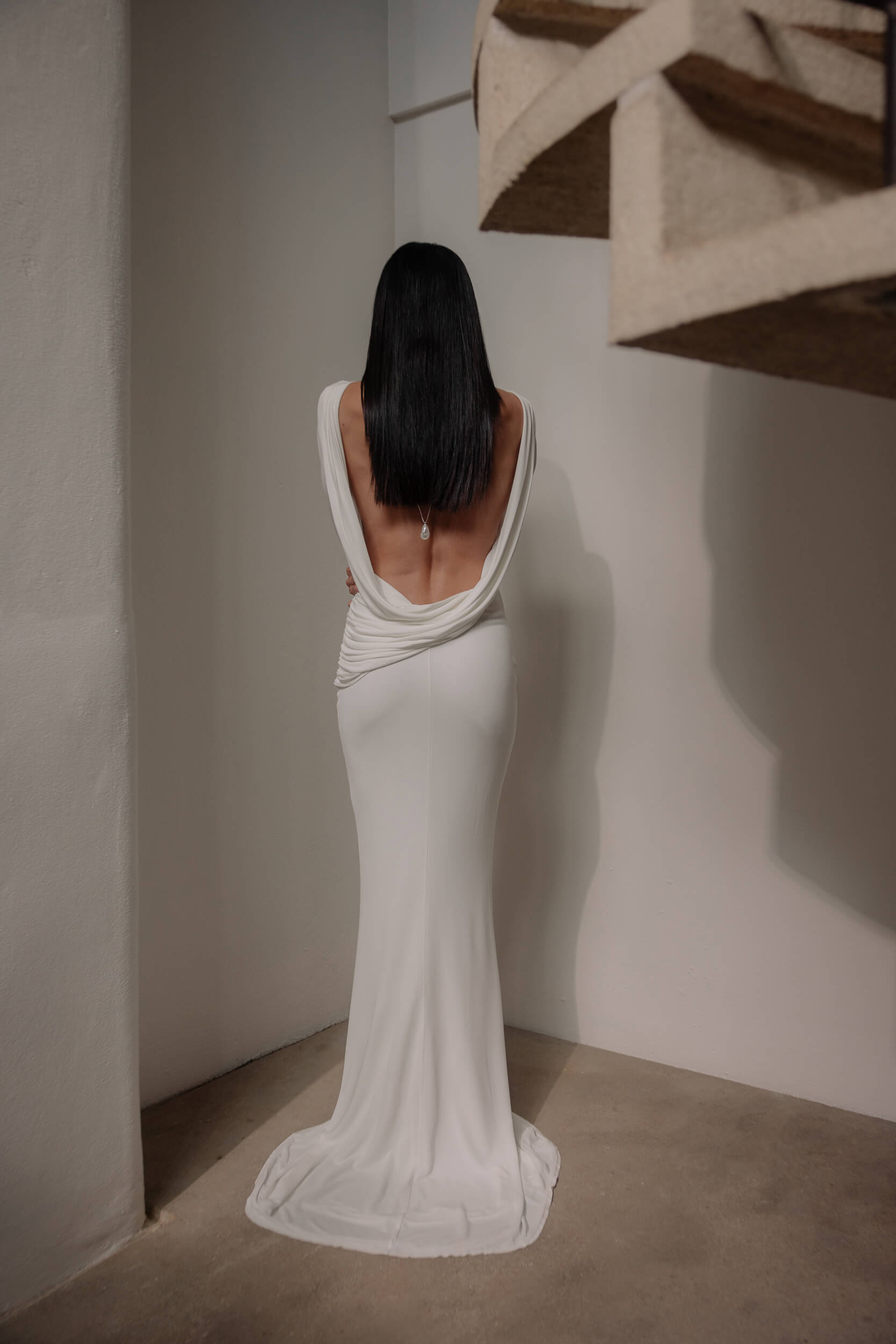
Well-said. “Alien” anyway has always reflected the anxieties of its time. What kind of fears or questions about our present world do you think “Alien: Earth” is holding up to the mirror?
Definitely AI and what kind of power and influence it will have on our world, on our information, the way we interact with each other, whether we’re able to steer conversation or steer our own identity or the way people perceive us. Also, the question: how can we obtain knowledge of what’s right and wrong in the world if AI exists? The technology is running so fast that people don’t really know what we’re doing and not being able to rein it in. So, it’s in some sense very fascinating because it will be developing very quickly, but also so quickly that I don’t think we quite know what kind of monster we’re making until it’s maybe too late. So, I support any kind of regulation. And that’s actually part of what the strike was about, the strike that hit the industry a couple of years ago because the people in the huge corporations want to make art, of course, but they also want to make money, and AI is like one of the tools they can use to make money cheaply because human resources are expensive.
So, that’s one of the things I really think we should be scared of: the huge corporations who are driven by money and not driven by what is good for this planet and what is good for the people living on this planet.
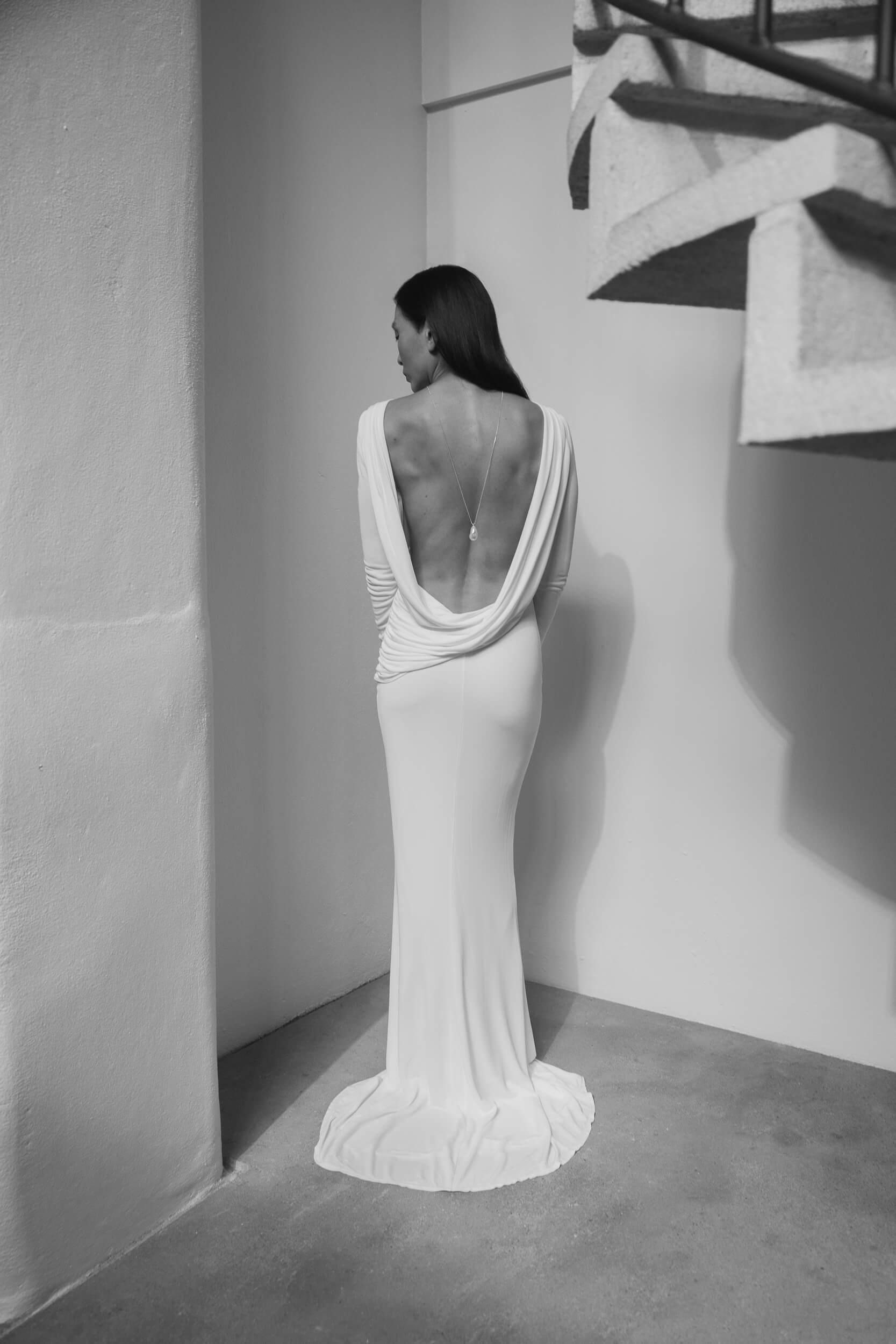
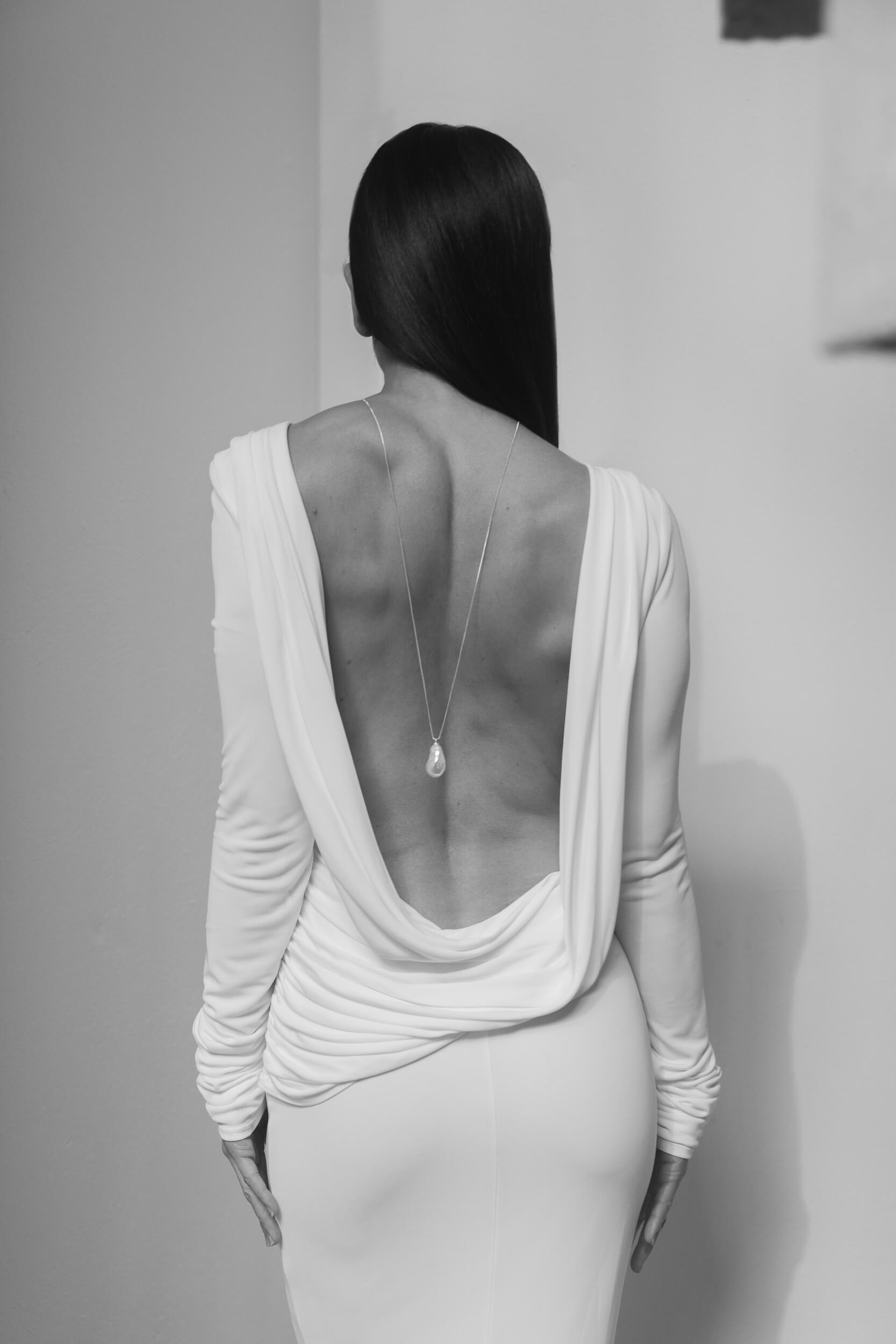
What’s the most surprising thing you discovered about yourself while working on this series?
I don’t know if I walked away from this project discovering something new, but these last handful of years I’ve been given more and more opportunities to work on really interesting projects with amazing people, and I think that I’m good at appreciating that I’m here, I’m in this space, I know what I’m doing. You know, I’ve known what I’ve been doing for a long time, but for me, the problem has always been, “Will I be given the opportunity to unfold what I have to give?” and I really take pride in appreciating every opportunity I get, and appreciating I’m working with amazing people on an amazing project, and I get to give something to that project. So, I don’t know if it changed something within me, but I was on the set just thinking, “I’m going to give a gift to this amazing gift that has been given to me”. I’m not feeling changed, but I’m feeling like I’m coming into my space.
An epic fail on set?
There are a lot of things that were epic on set. You know, there’s a really big scene in episode six, an unusually long scene, almost like a little theatre piece with a lot of dialogue, and I’m playing opposite Samuel Blenkin, who is absolutely brilliant – what he does with that character is just absolutely amazing. to such a degree that I also felt a little anxious about having to go toe to toe with this guy who is so brilliant, and his character is such a smart ass. But we have to be equal in the scene, it has to be some kind of fight or else this fight won’t be exciting for the audience to see. So, this is the biggest scene I have in the whole season going up against them. We were at this location they had chosen, a musicals conservatory in Bangkok. We’re shooting, I think it must have been in May, and it is extremely hot in Bangkok in May. It’s a beautiful space, but we’re not dressed for summer – I have thick silk, three layers of coat, a huge wig. I don’t sweat that much, I’m actually really good in hot weather, but this is a lot, and because we’re shooting and the scene is so dialogue-based, they have to turn off the air condition. So, it gets profusely hot. It was just so hard shooting 8 or 10 hours in this heat, and even though I knew this dialogue to the bone, when it was like midday, I would forget lines because I was so hot and sweaty. It was a very challenging day, but also a lot of fun. They fed us a lot of ice cream that day [laughs].
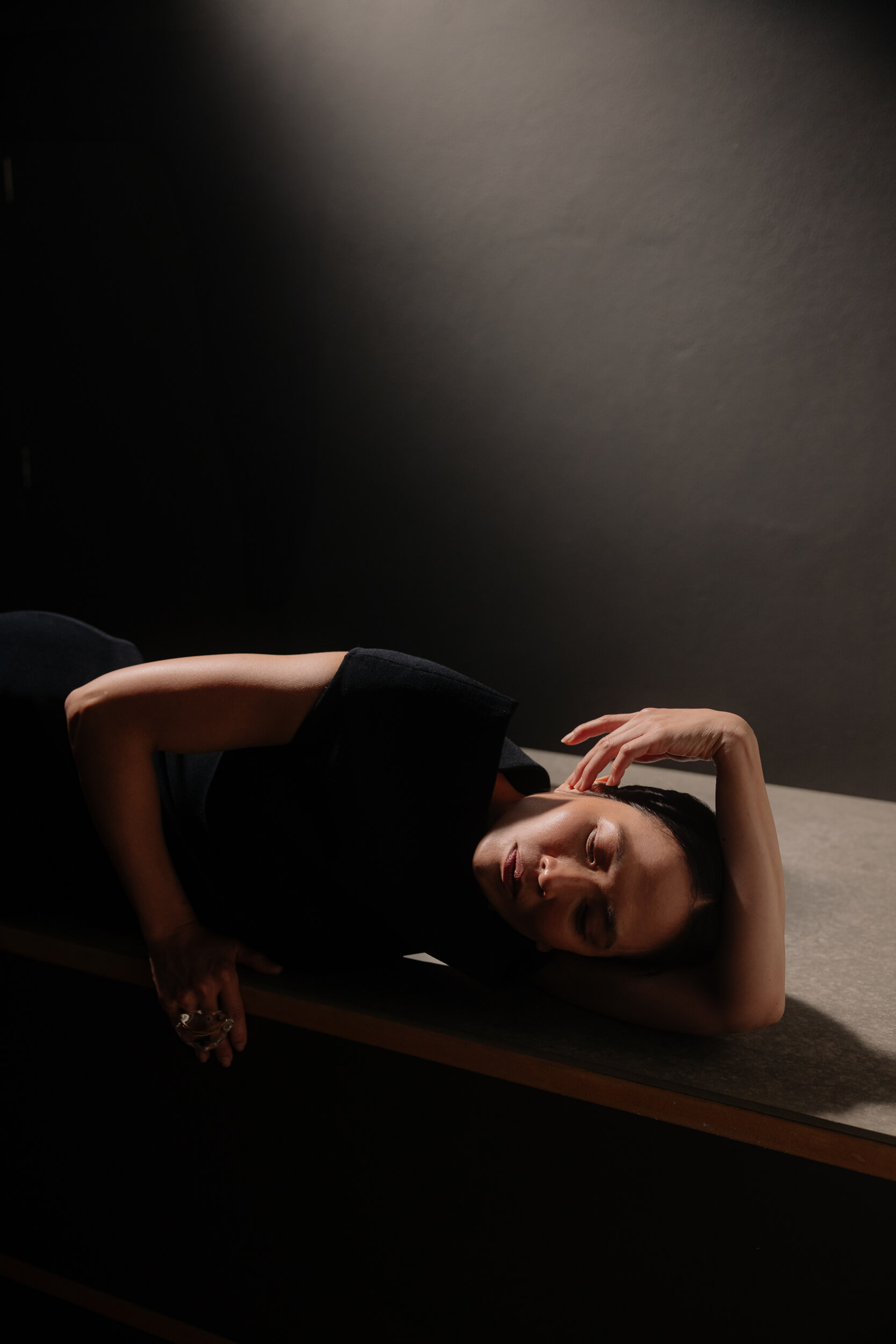
Your biggest act of rebellion?
I have to say I am a good girl, I was never brought up to be rebellious, and I’ve always been a little bit scared of stepping outside the lines. But this business is a very unequal business. It really didn’t make sense continuing being a good girl and playing by the rules because the rules were clearly meant and made to service a small group of people and not everybody. So, I really had to learn to not be a good girl and be rebellious. I’ve been very activistic in my whole career, speaking up about inequality and the lack of representation, the lack of different classes, different ethnicities, gender imbalance in the industry. And I think one of the highlights of my rebellious activism has been a campaign called A Bigger Picture, where I and four other female actresses redid the posters of three big projects that had very poor representation, very homogenous representation. We remade those posters proposing what these projects could have looked like if you wanted them to reflect what society looks like today. That campaign went viral and started a discussion in the Danish film industry that is still ongoing. I’m excited to see if the talks translate into action now. I’m still waiting.
Your biggest fear, instead?
My biggest fear is that somebody fucks with my daughters. That’s my biggest nightmare. They’ve just come into teenagerhood, both of them, they’re 13 and 15, and I’m really fearing the day they start going out on the town and drinking. I’m going to be like the first person to buy one of those cups with a straw so nobody can drop anything in their fucking cups. I can have nightmares about somebody putting something in a girl’s drinks.
These times are very scary for girls.
Right, and also just the numbers, the statistics say there are so many people that get dropped at nightclubs.
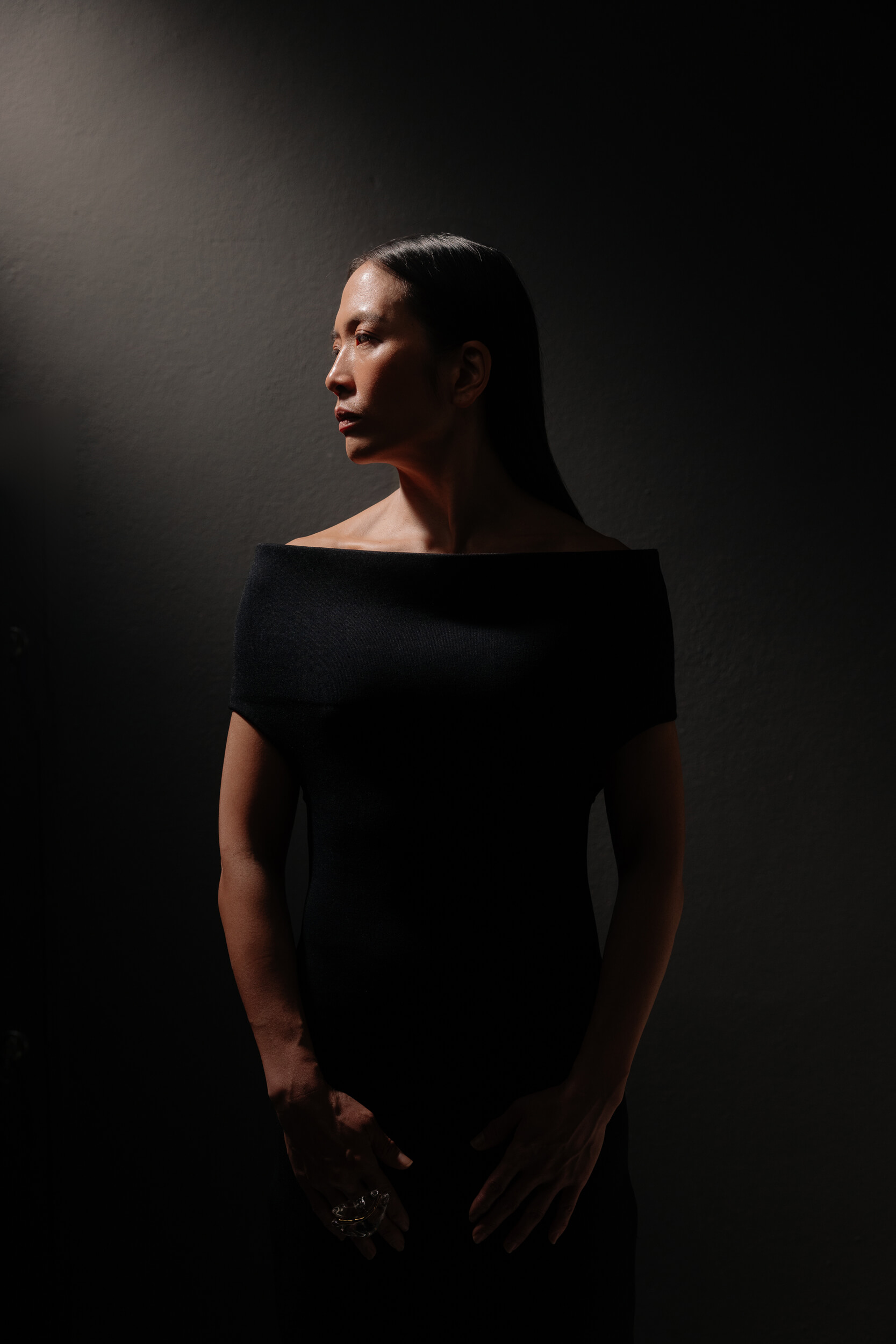
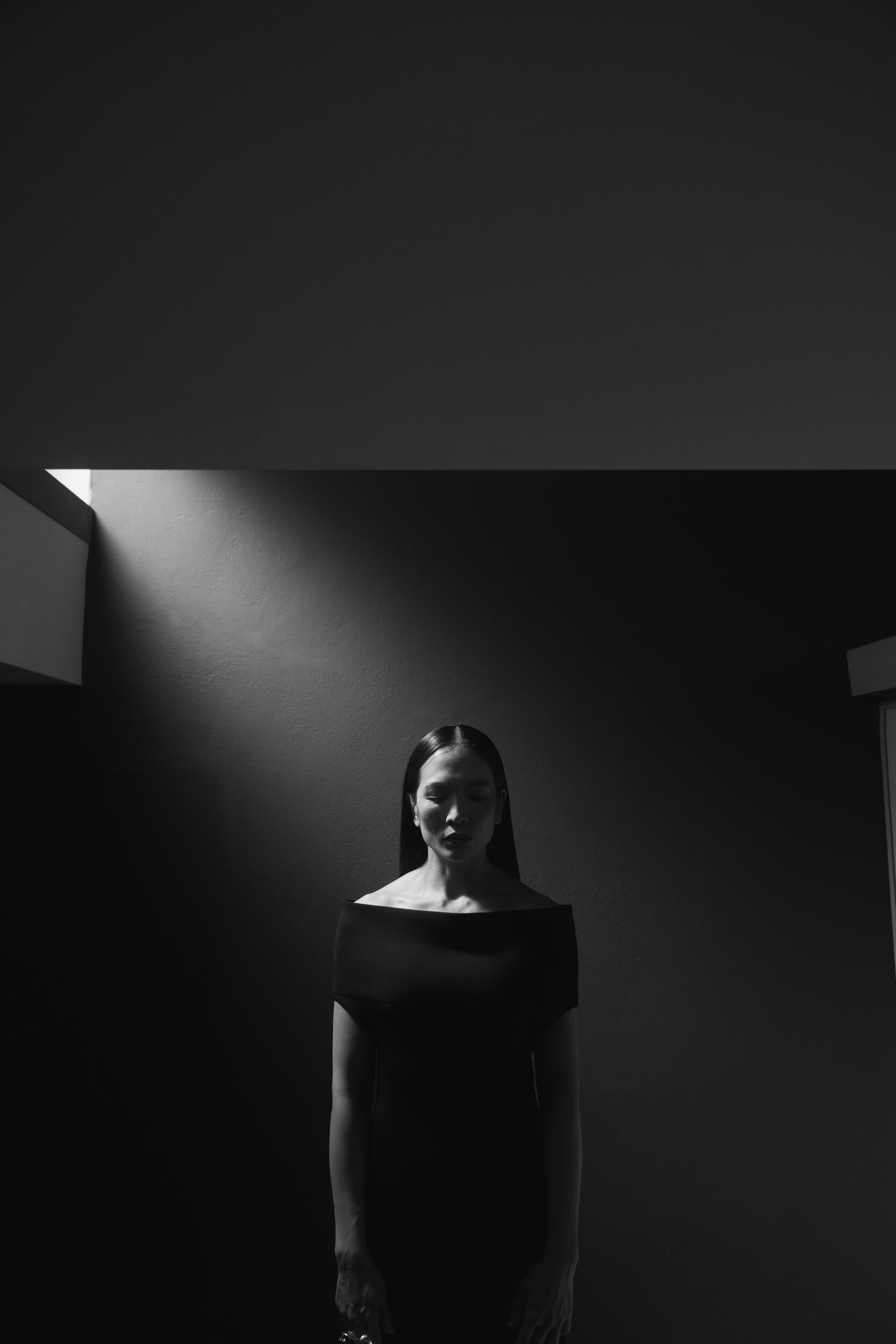
The latest movie or tv show you’ve watched that has stayed with you for a while?
You know, I’m a co-chair of the local Danish organisation called “Women in Film and TV” and apart from lobbying and doing activistic work to change the industry to be more equal for everybody, we also have communal viewings at the cinema. One of the last films we showed was “There’s Still Tomorrow“, which is like an Italian film.
Of course, by Paola Cortellesi.
Yes! I think it’s amazing, so creative in its form. It plays with traditional old Italian films, it’s very feministic, it is so beautiful, so funny, original, touching, inspirational. That was an amazing experience.
If you could choose what to see outside the window right now and forever, what would it be?
The first thing that comes to mind would be the sea, but it has to be a calm sea with sun, not like windy. Or a huge field of wild flowers, that would also be beautiful. It’s kind of funny because I’m not really a nature person [laughs]. I mean, I love going on a beach vacation, but I’m very much a city girl, so this is totally imaginary because I would never move to the country to have a wild field of flowers outside my window.
But it’s a view that maybe makes you feel at peace.
Yeah, I would love the view, but just not everything else that came with it [laughs].
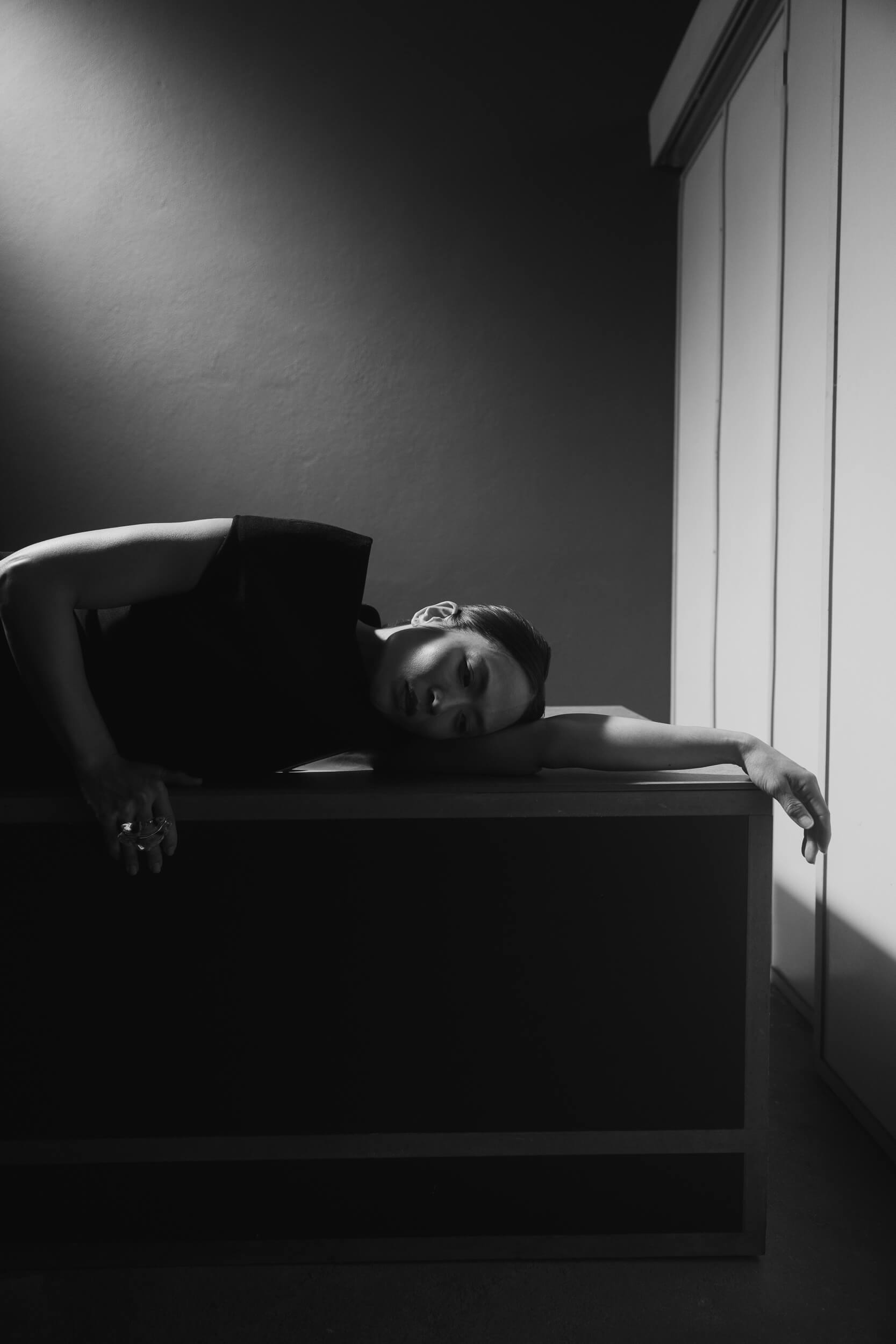
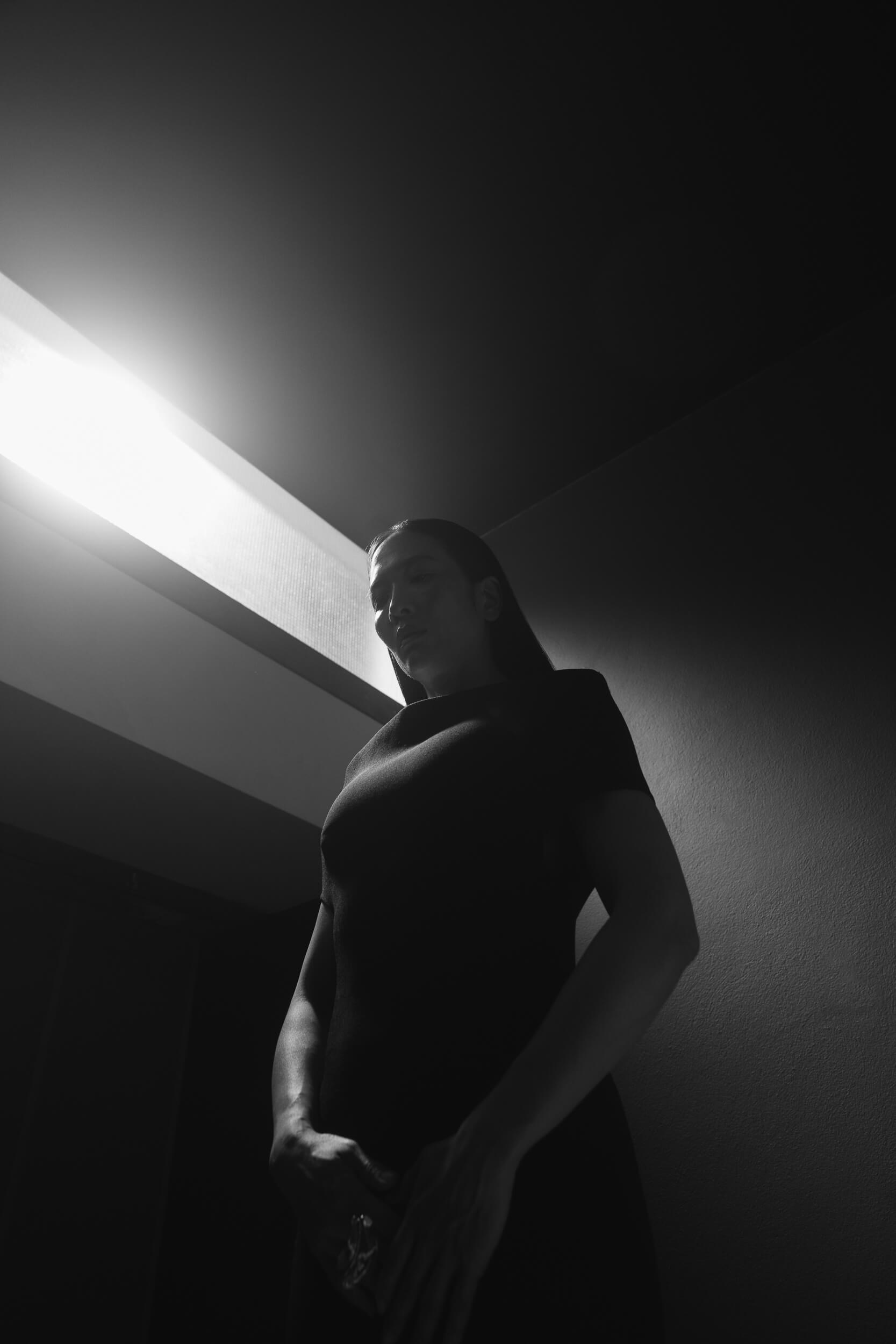
The latest person of event that made you smile.
Like I mentioned, I have two teenage girls, and I can very much feel the emptiness syndrome coming on me. The oldest one has been very teenager-y for quite a while, but the youngest one, she’s been very cute and close, we’ve been very symbiotic for a long time. Then, almost overnight, when she turned 13, she became a pretty moody teenager – now she doesn’t want to be kissed, she doesn’t want to be hugged. And I just felt really bereft. I know that people always say, “Remember to enjoy it while you have it, the closeness you have with your kids when they’re little”. So now I just suddenly feel very present in my life that in any moment they’re going to be gone. I try to appreciate every single moment I have with them, and anytime they want to hang out with me, I’m grabbing onto it. We took a trip to Hamburg, just the three of us, two weeks ago, and I saw that “Freakier Friday” with Jamie Lee Curtis and Lindsay Lohan had premiered in the cinema, so I thought to bring them to see that. But we had to go back watch the first one, “Freaky Friday“, which I actually hadn’t ever seen. So, we sat down all of us in front of the TV, and we put it on. It is amazing! It is so funny and the perfect watch for mothers and daughters! We laughed so much, and I enjoyed so much spending that time with my daughters.
What does it mean to you to feel comfortable in your own skin?
In general, I feel really good in my body. I take care of myself, I’m really strict on not being strict on myself, not judging what my body looks like, not trying to strive for perfection or any kind of ideal, and really appreciate that I have a healthy body that I don’t have any problems with. I love the summer, I love wearing a dress and nothing else, I’m not self-critical in regard of my body.
What’s your happy place?
My happy place is having a really good meal with either friends or family. I can say I have that a lot, so I’m happy a lot of the time.
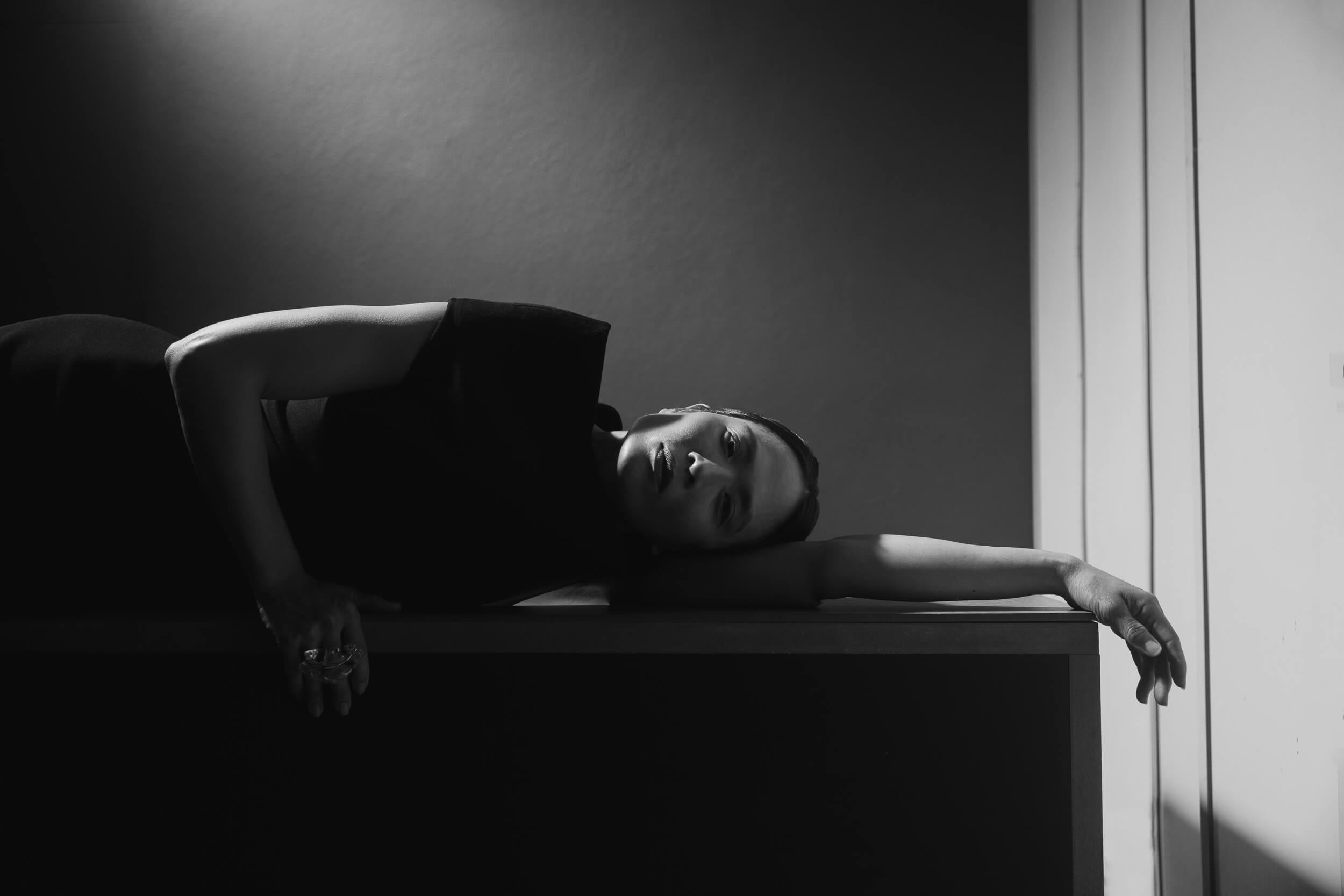
Photos & Video by Johnny Carrano.
Makeup by Kelly Cornwell.
Hair by Dayaruci.
Styling by Rhea Francois.
Thanks to Telescope Agency.
LOOK 1
Dress: Eterne
Shoes: Femme la
LOOK 2
Necklace: Pilgrim
Dress: Rat and Boa
Shoes: Studio Amelia
LOOK 3
Dress: Toteme
Shoes: Studio Amelia
Ring: Alexis Bittar
LOOK 4
Dress: Toteme
Shoes: Femme la

